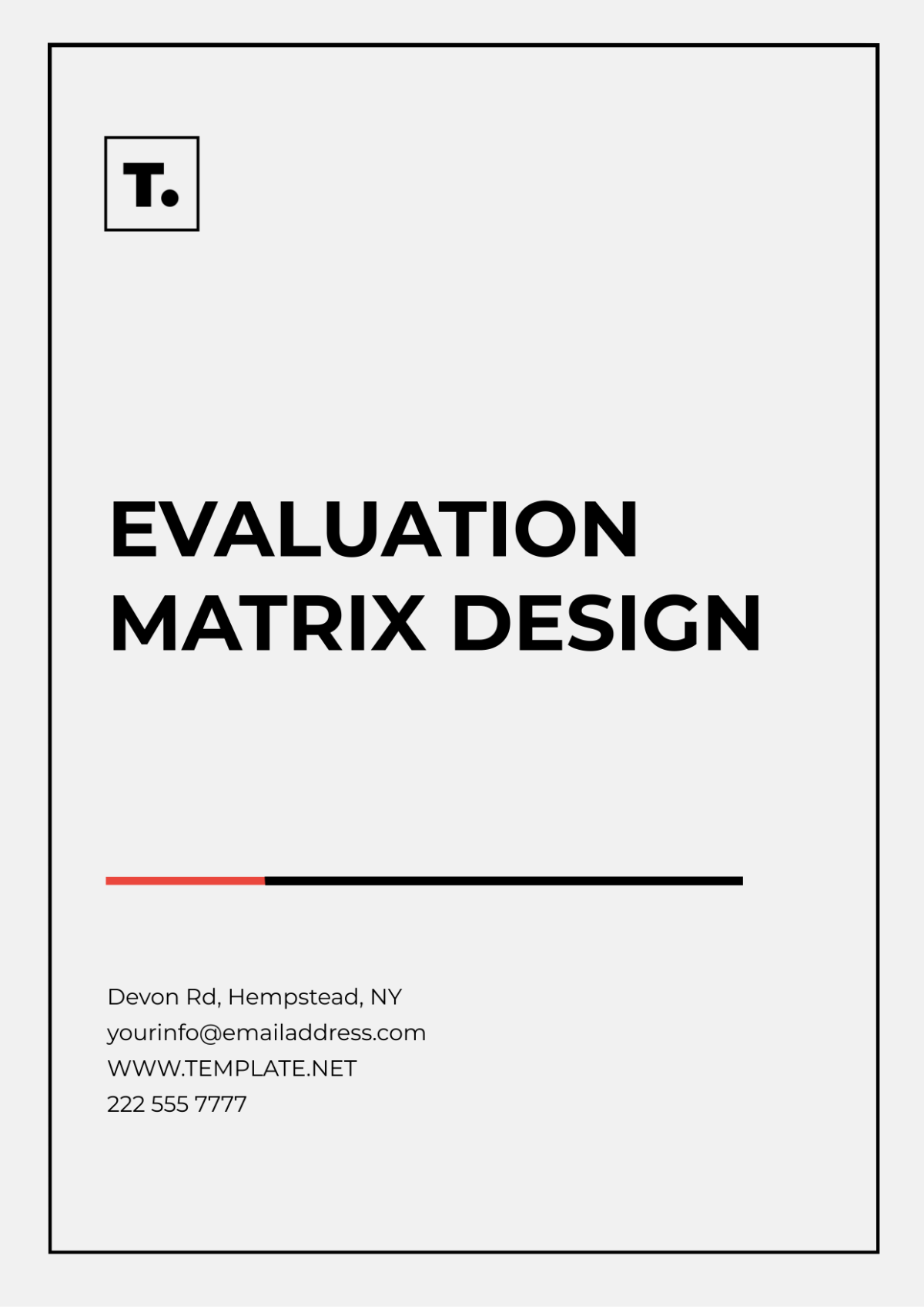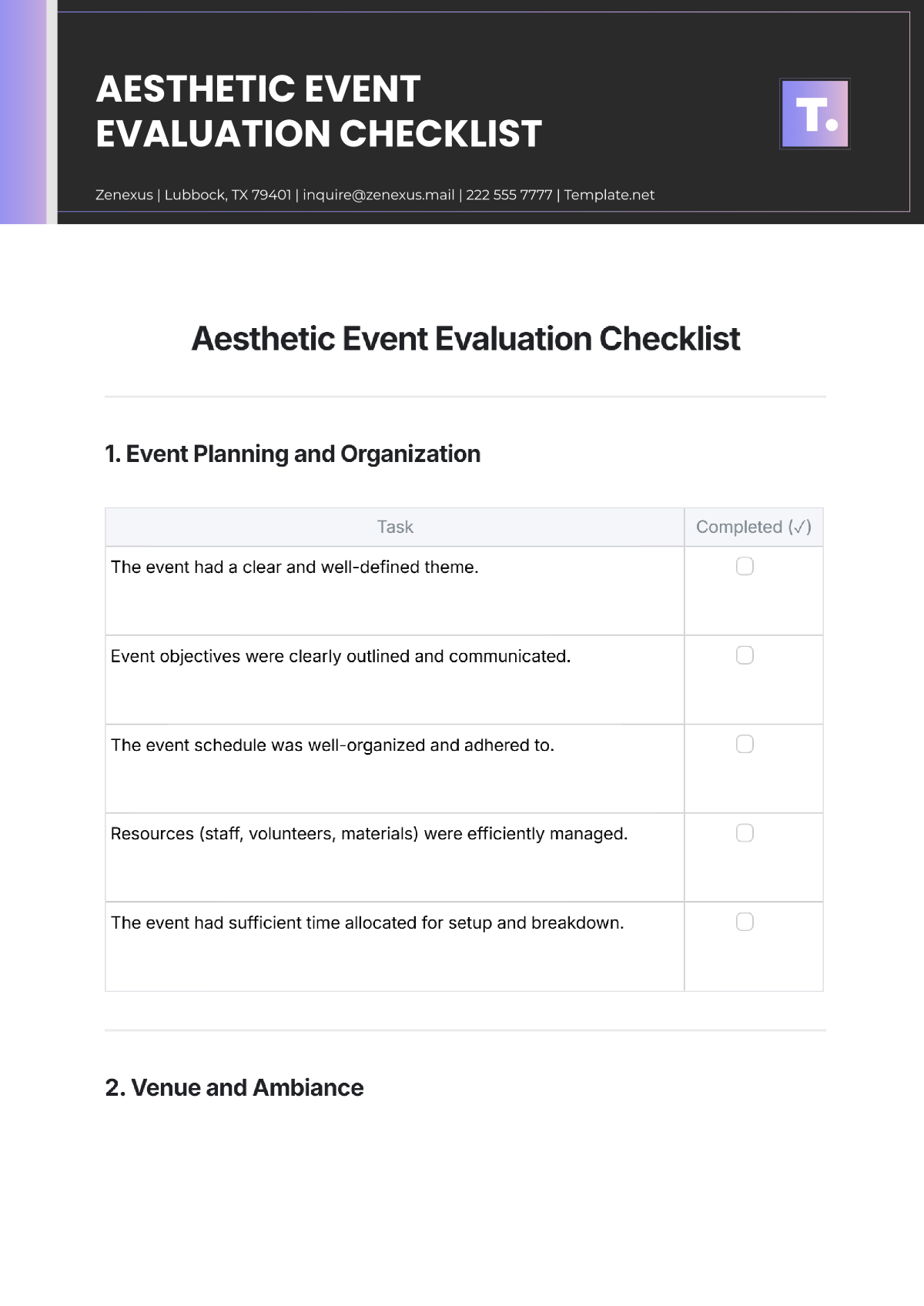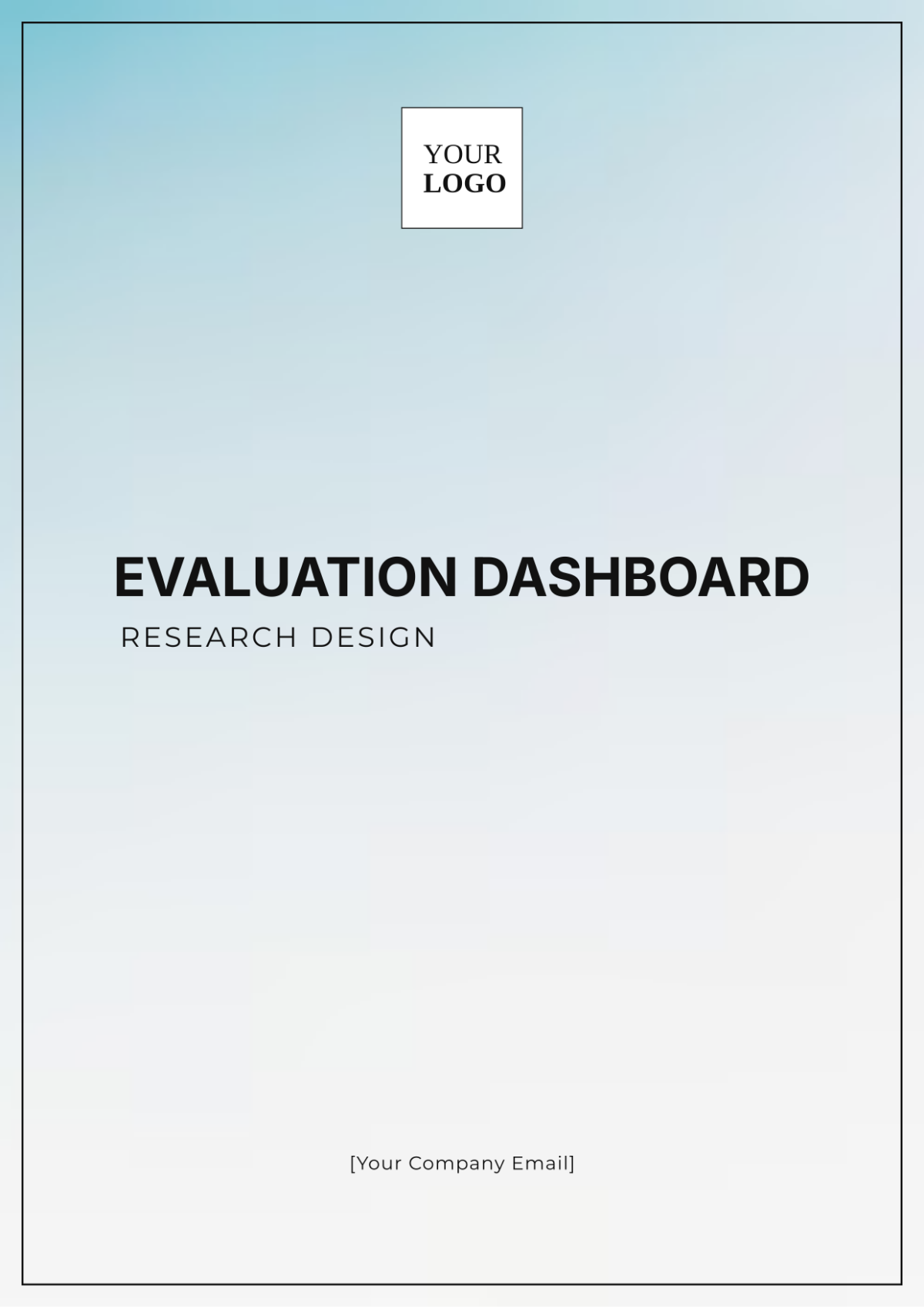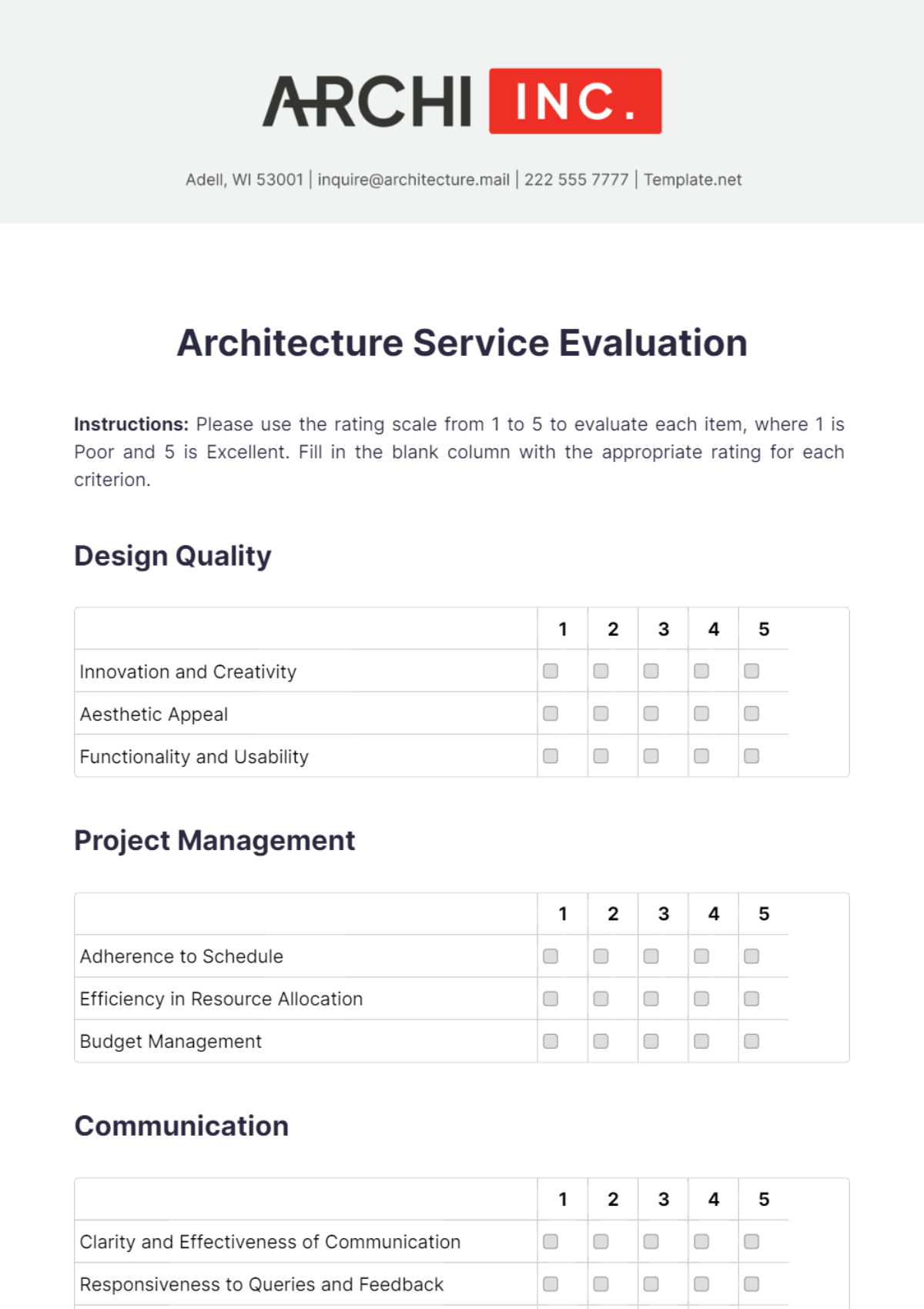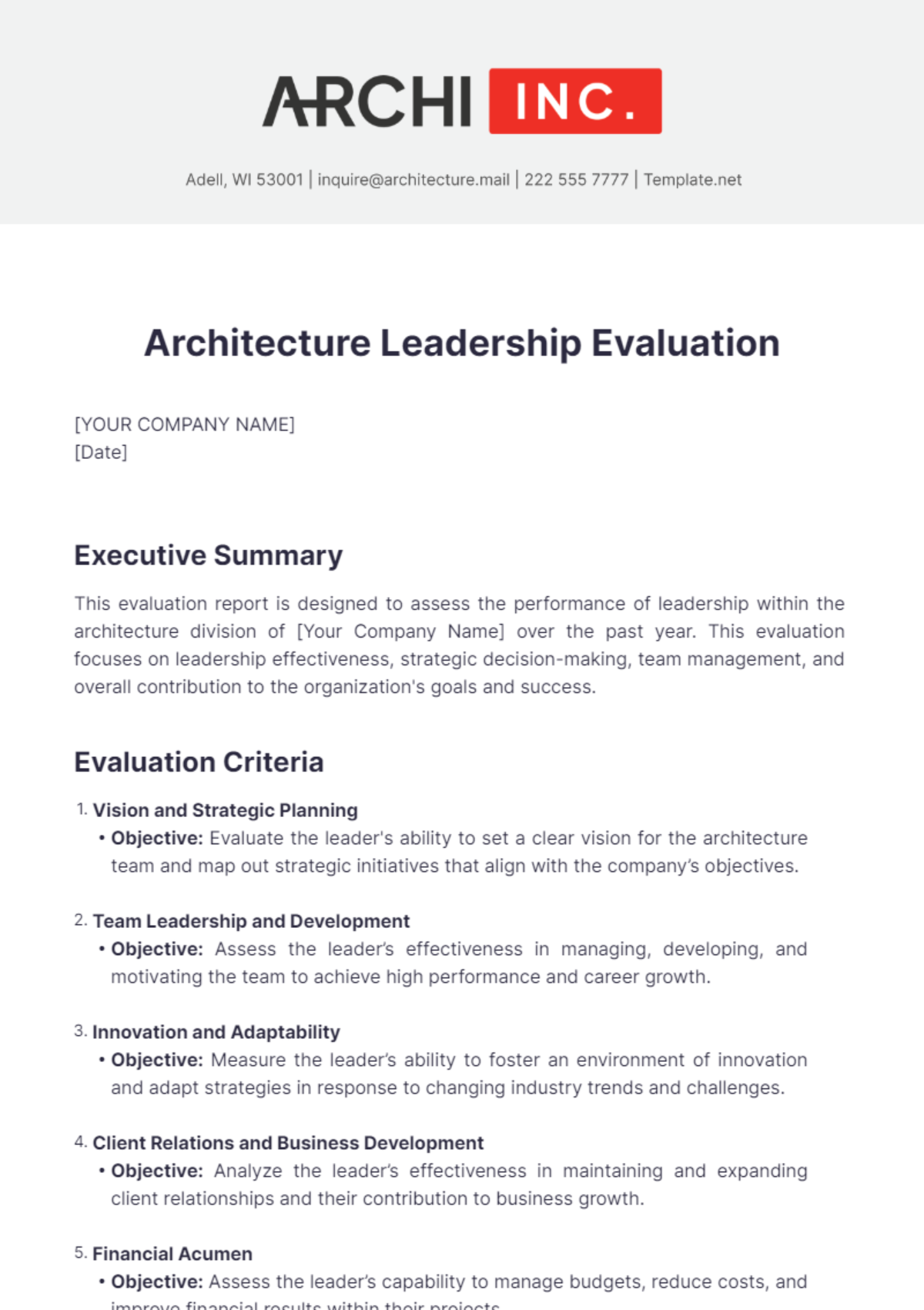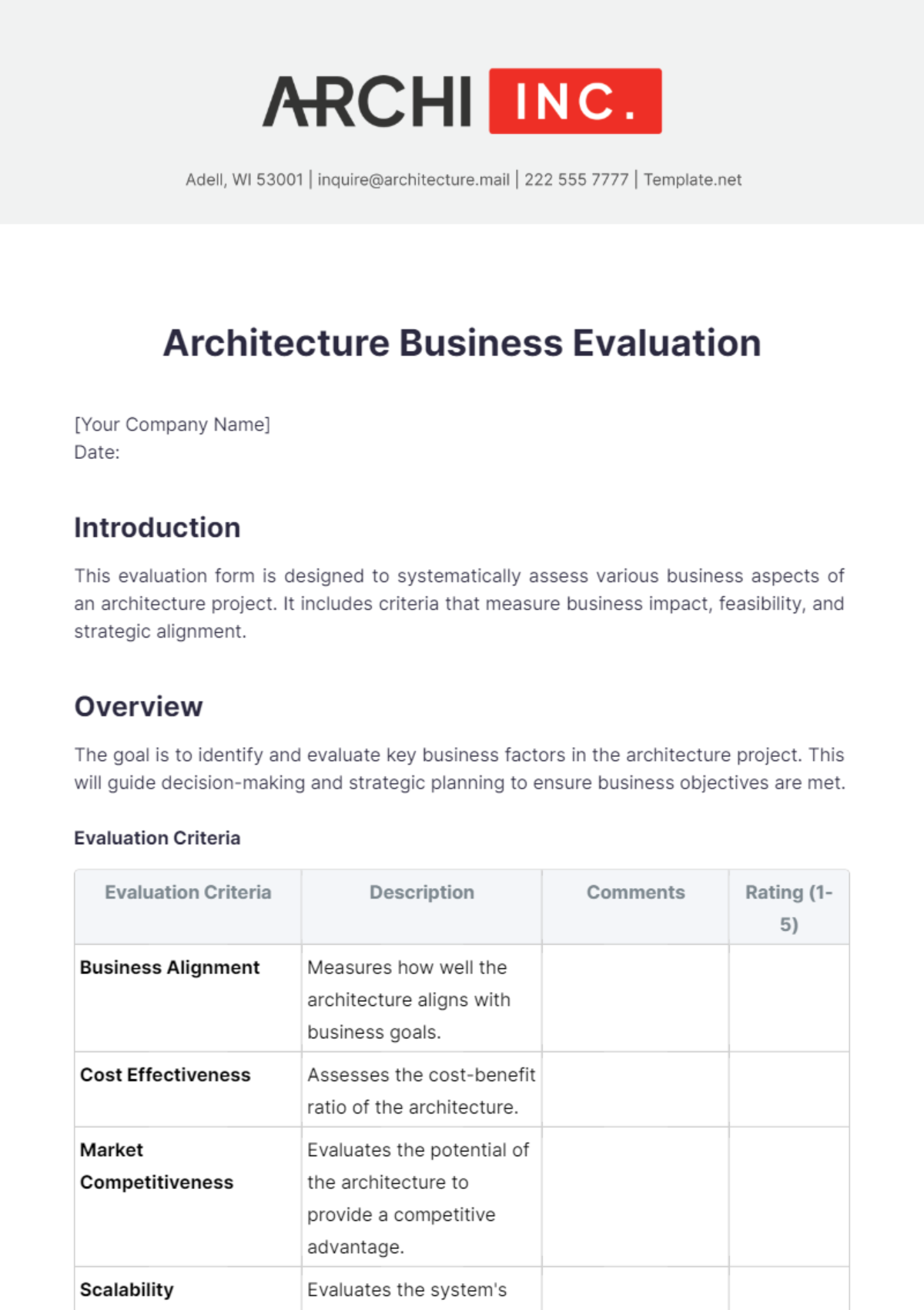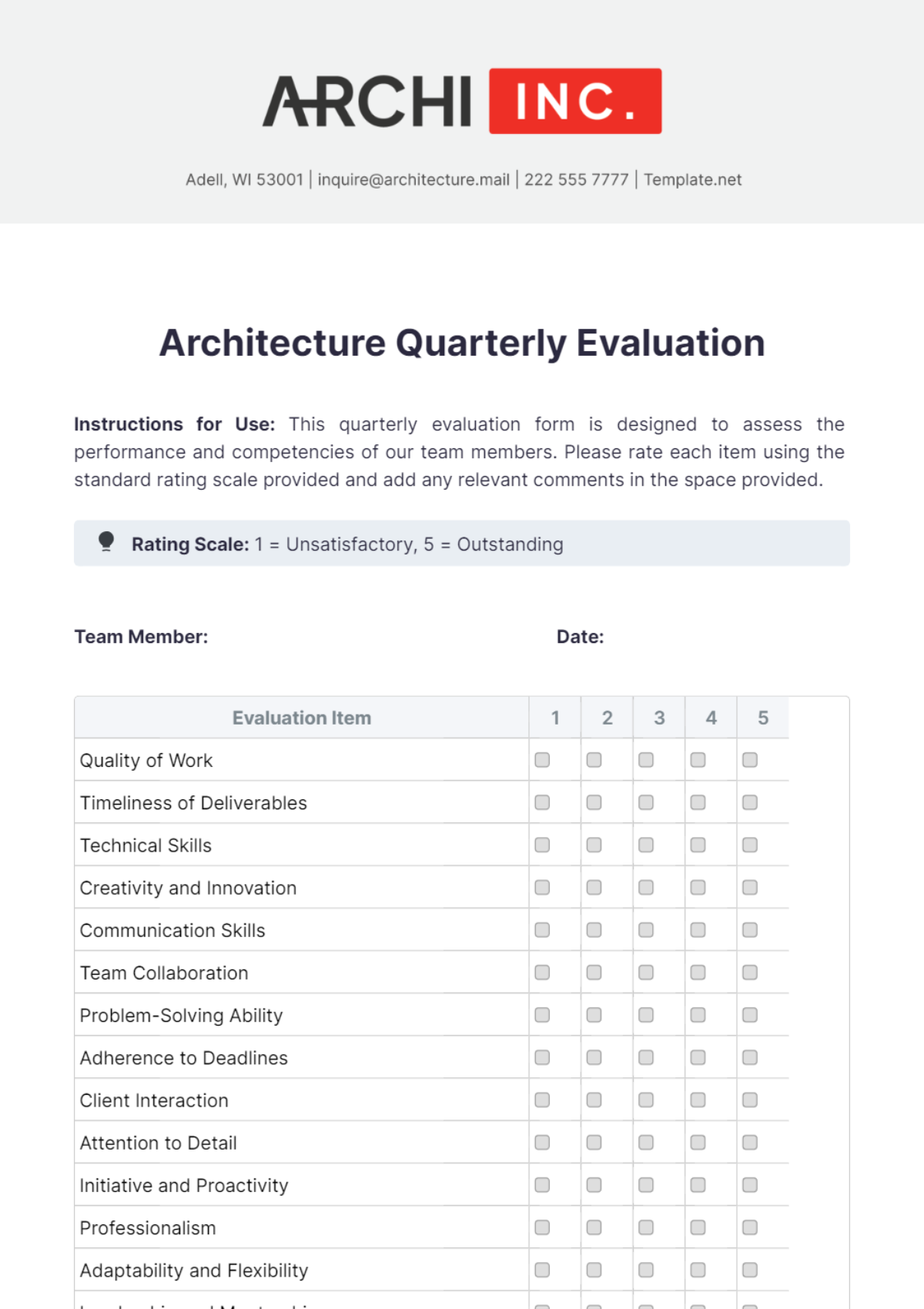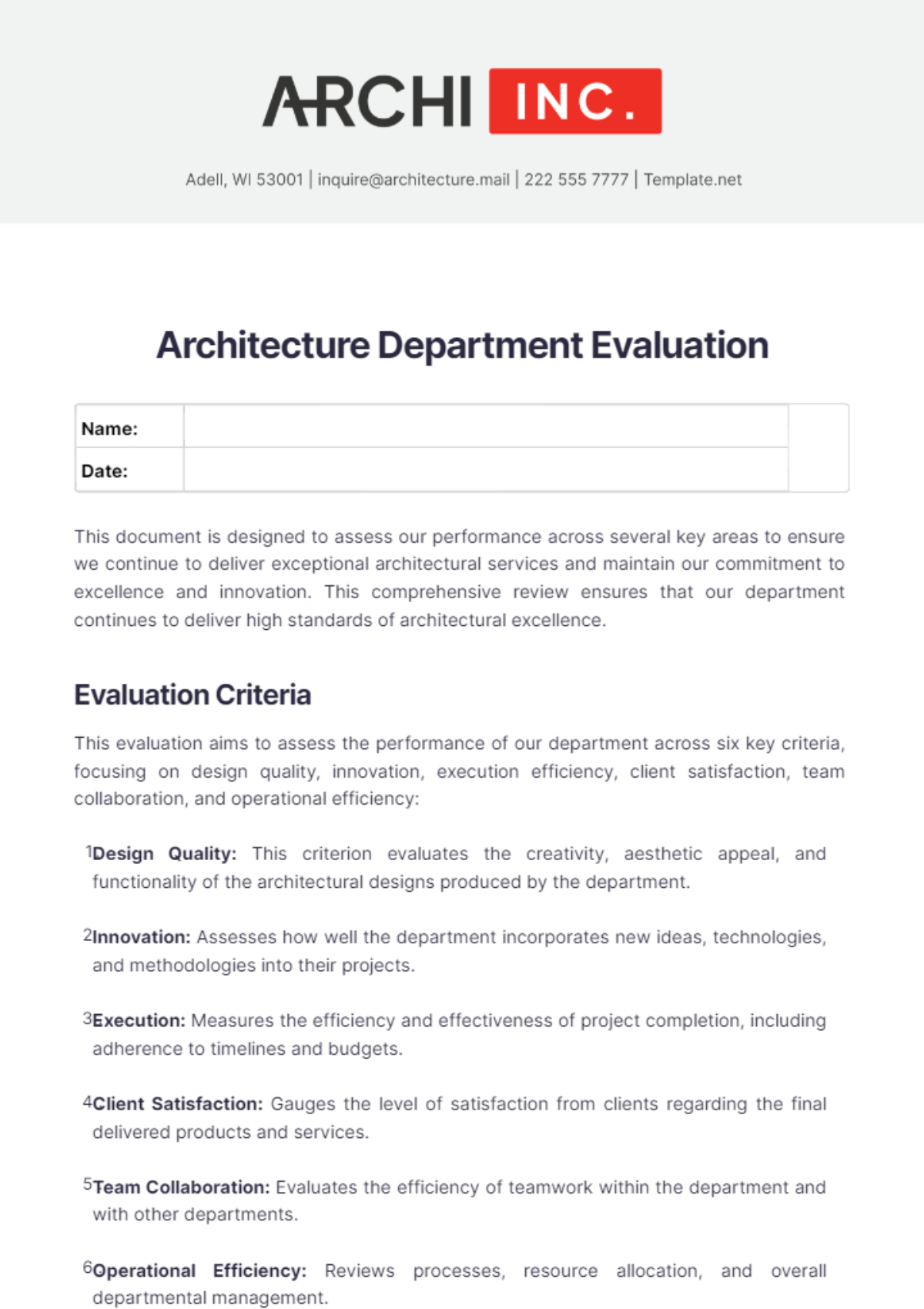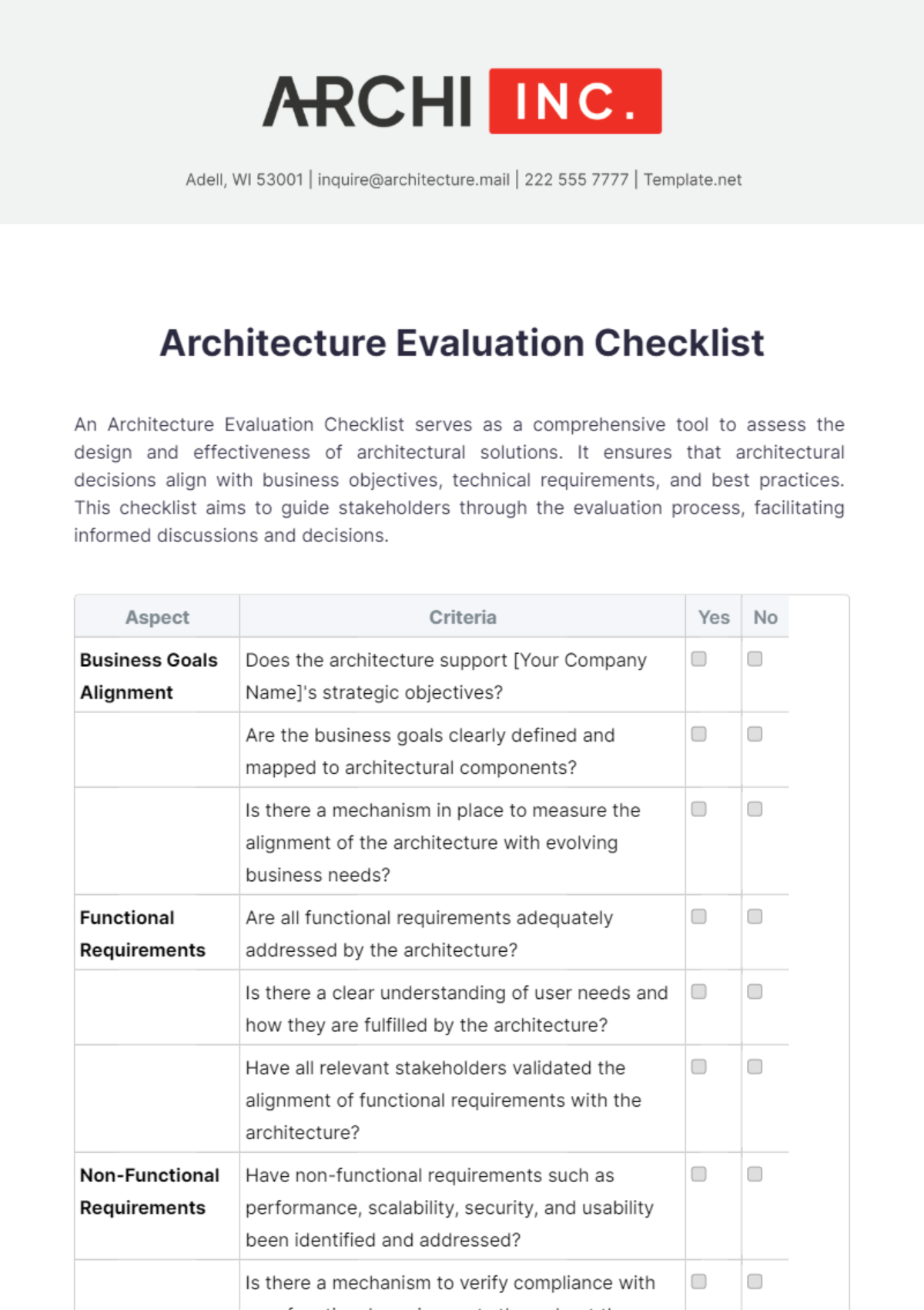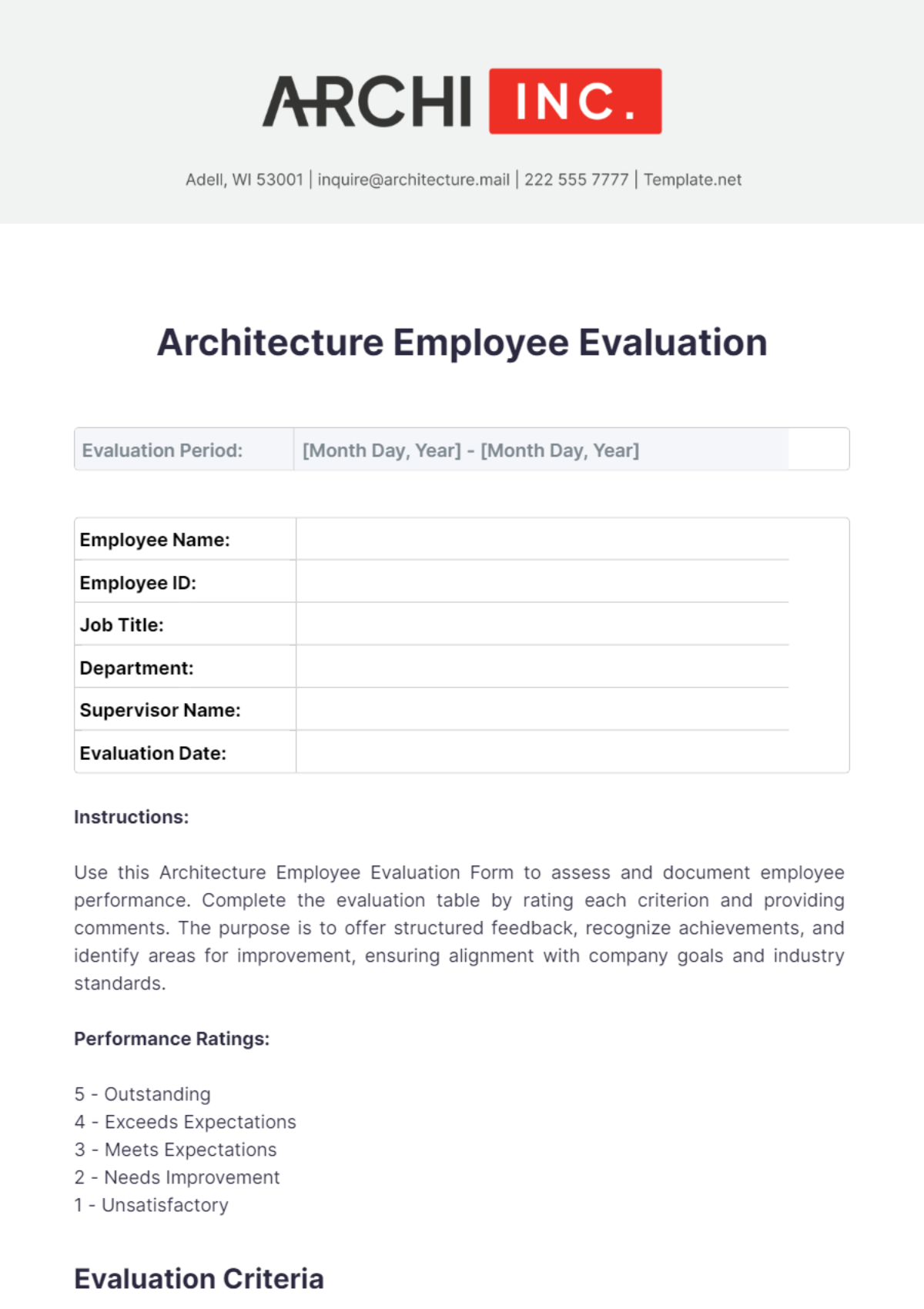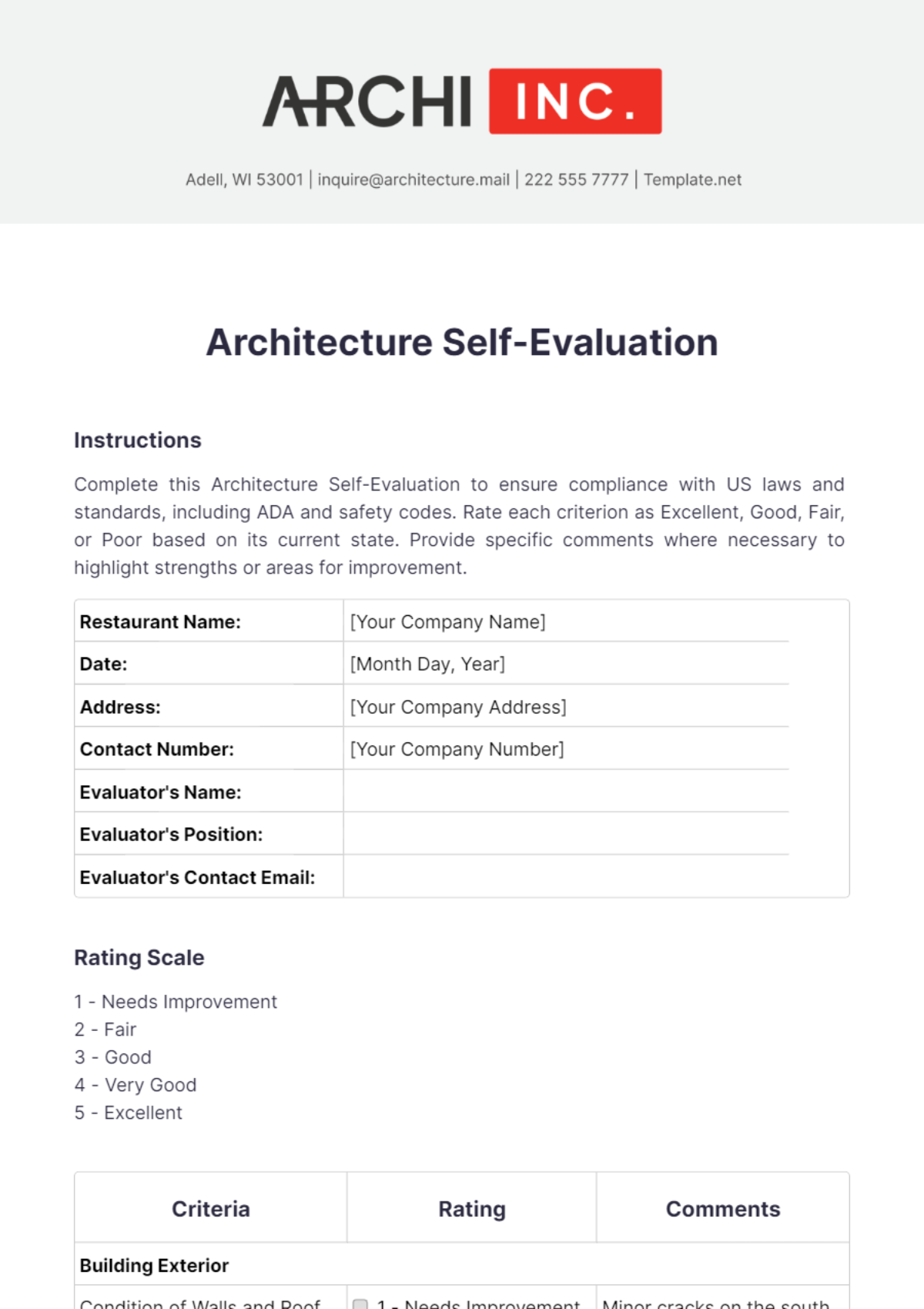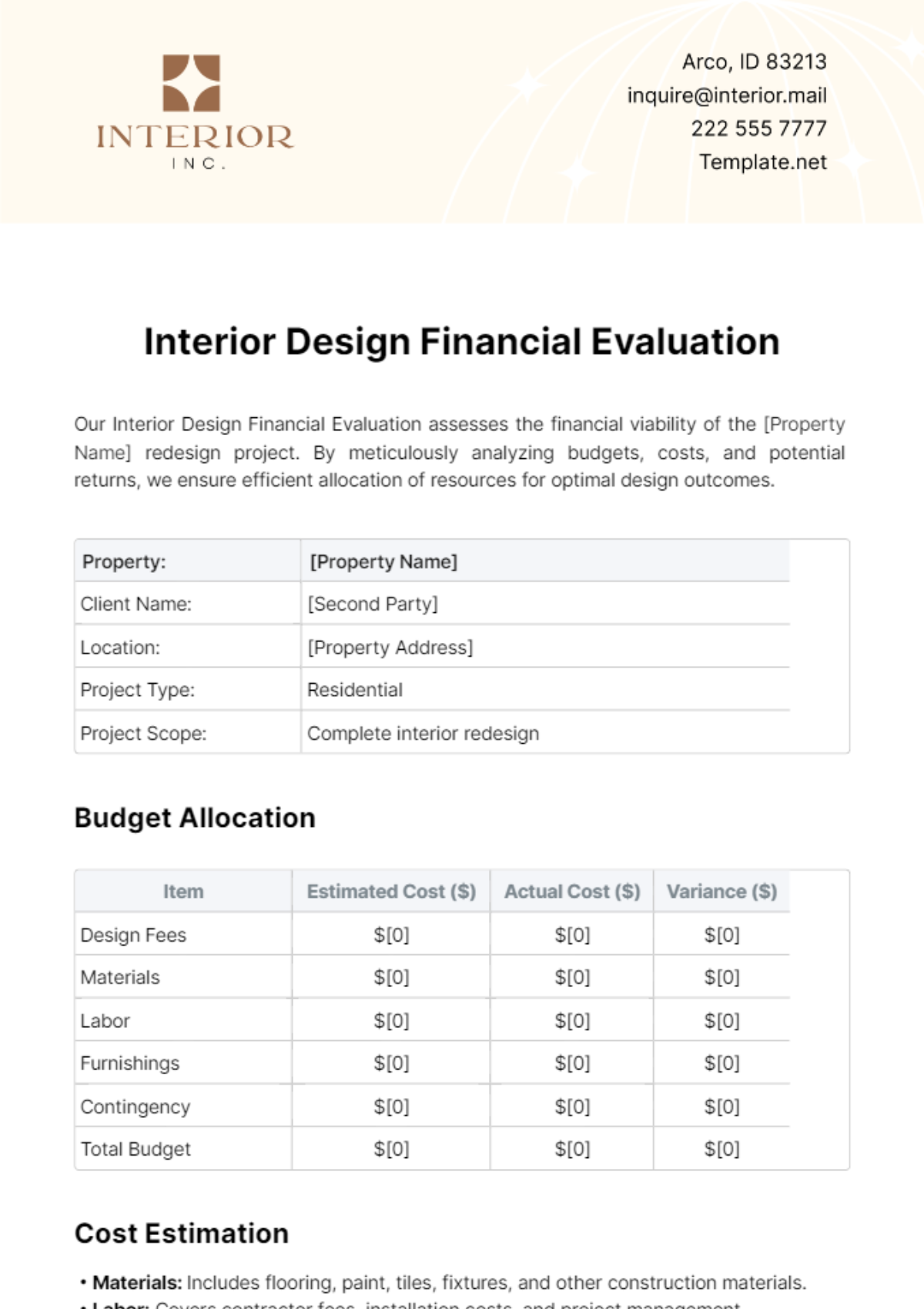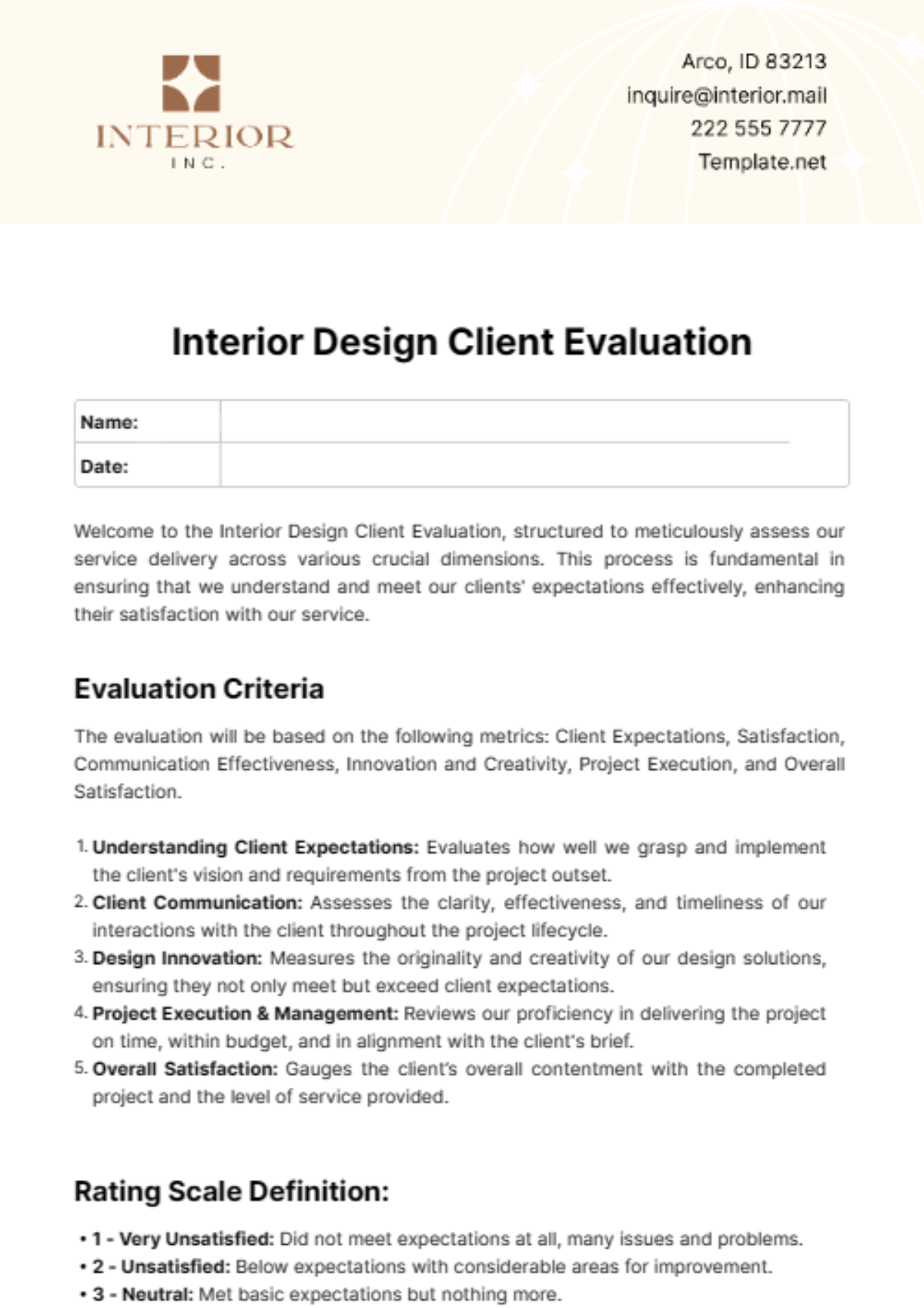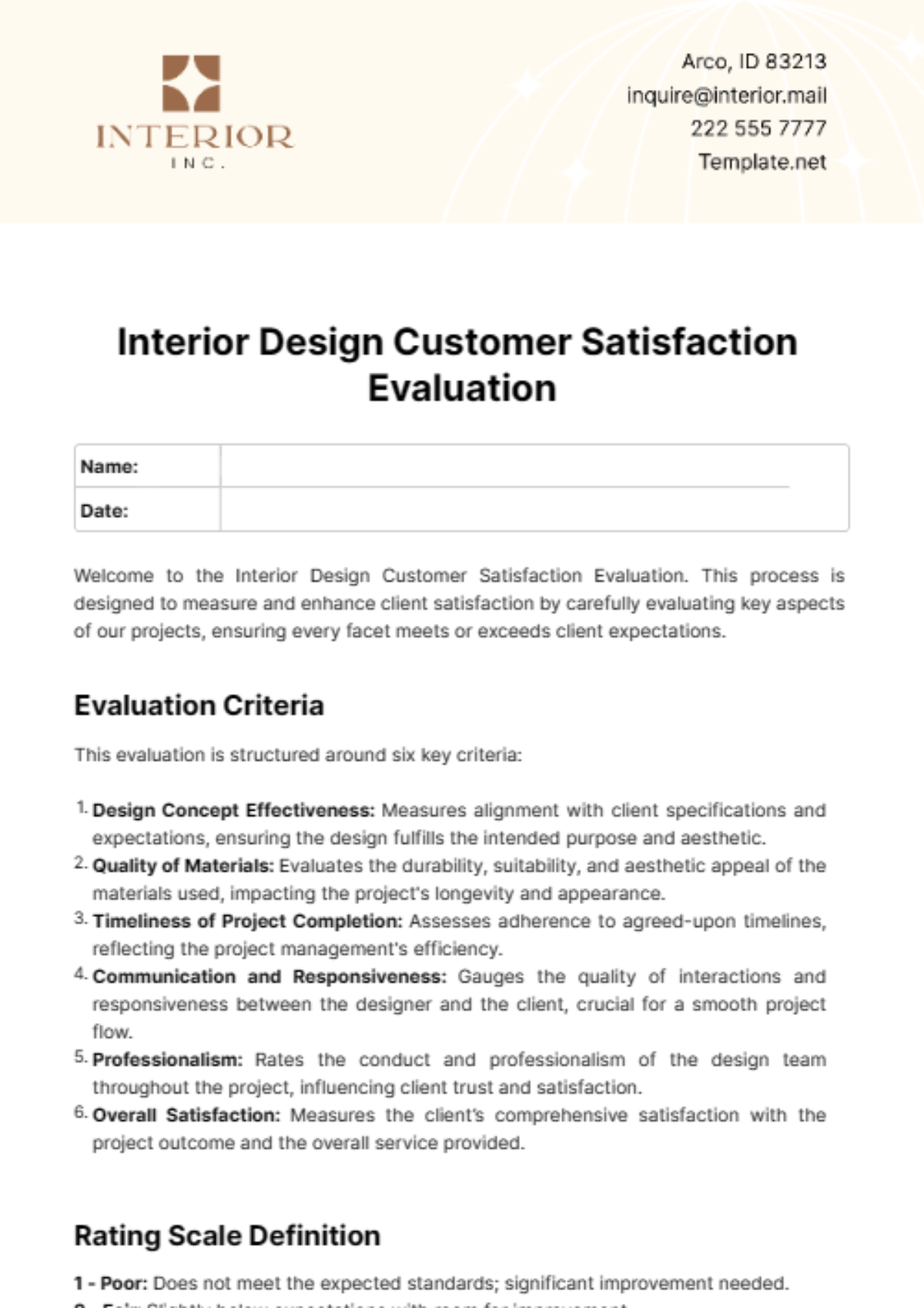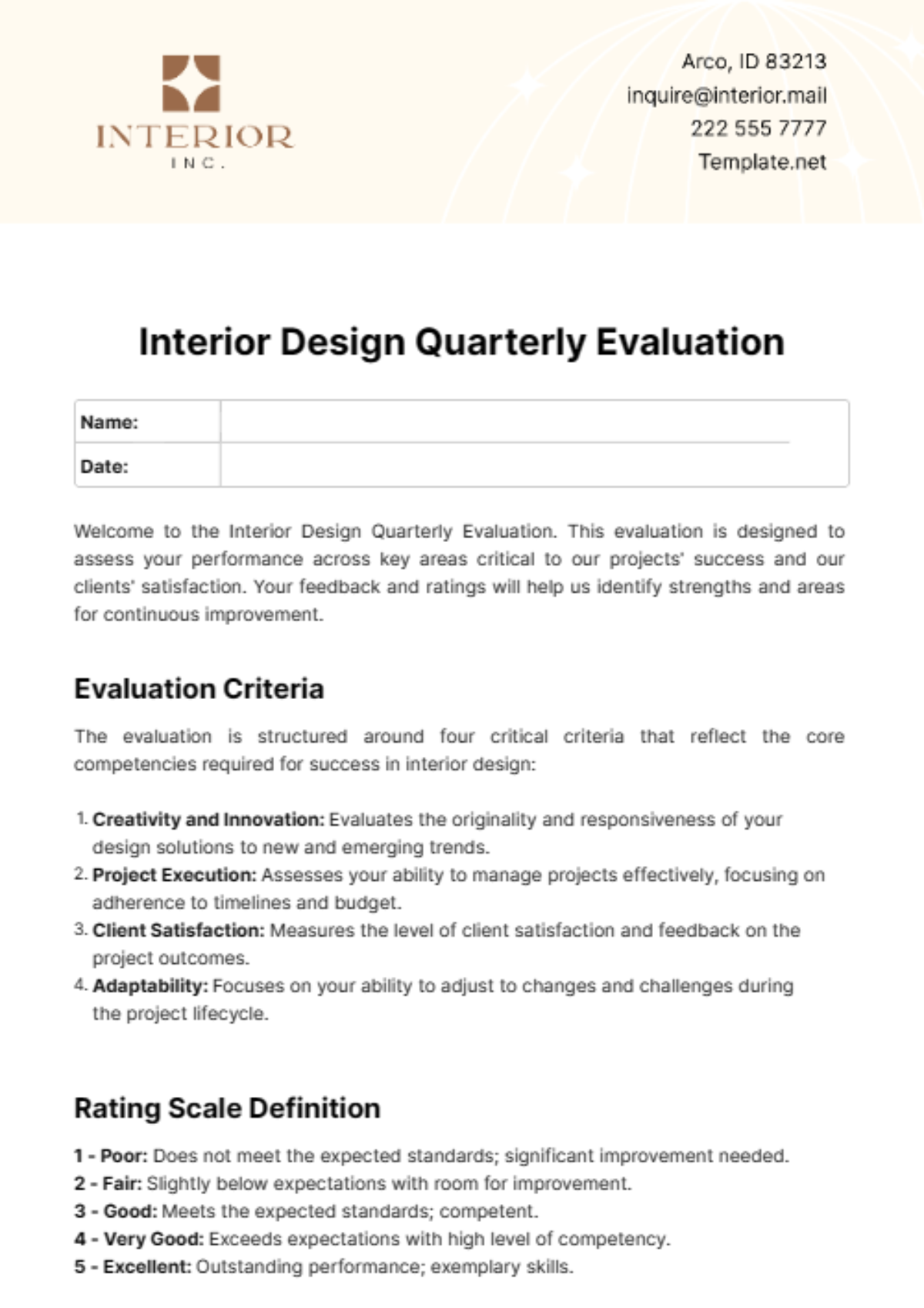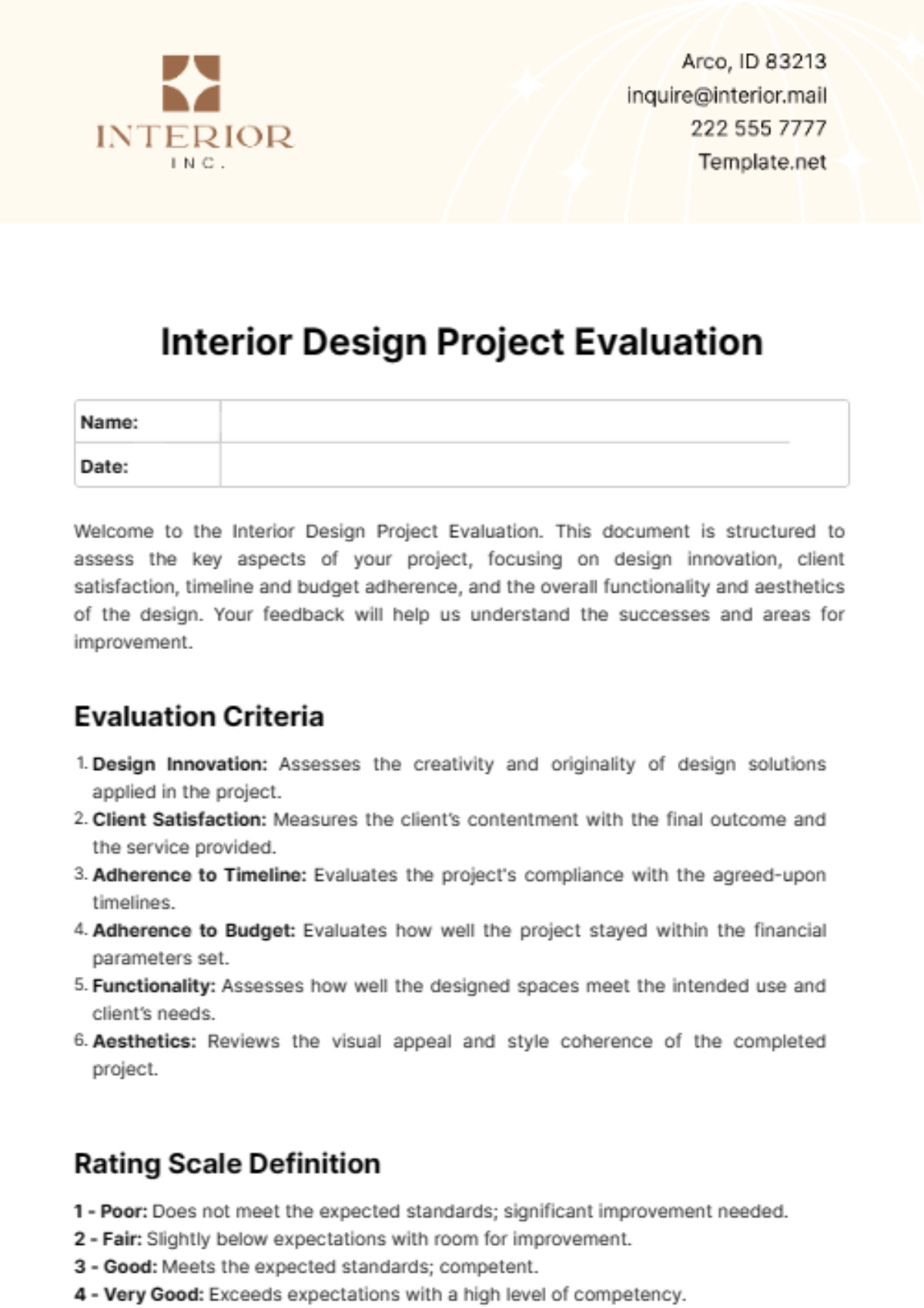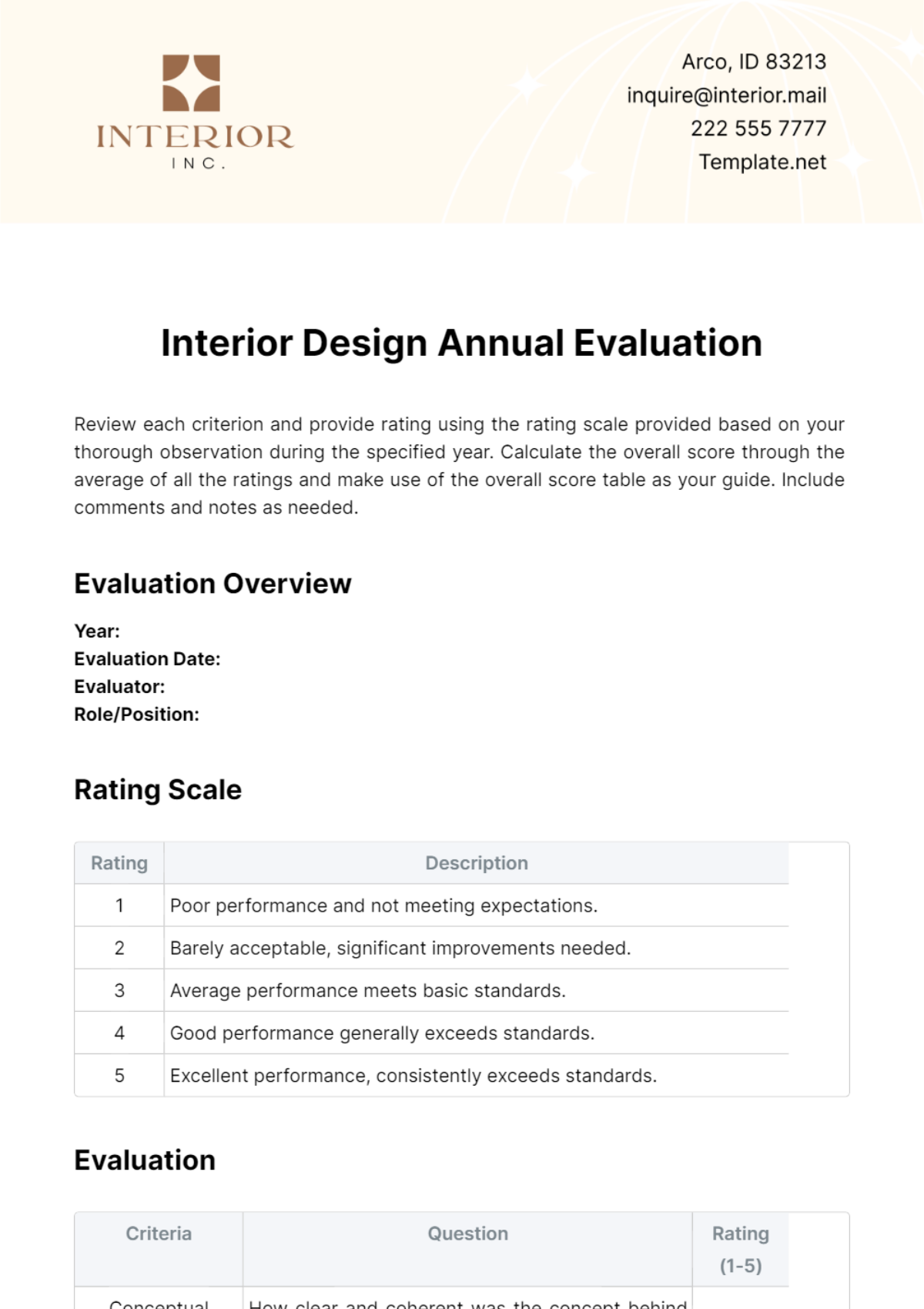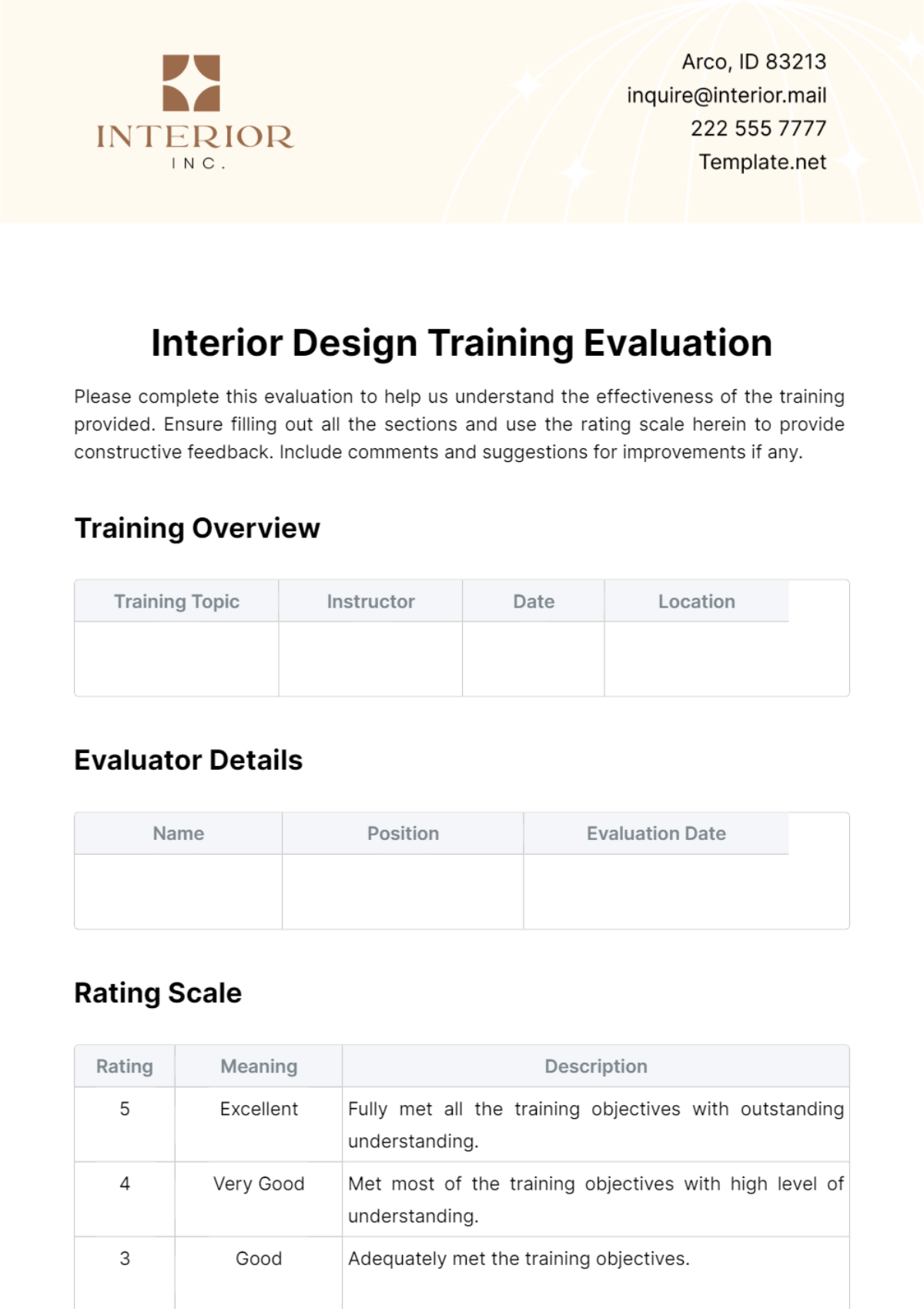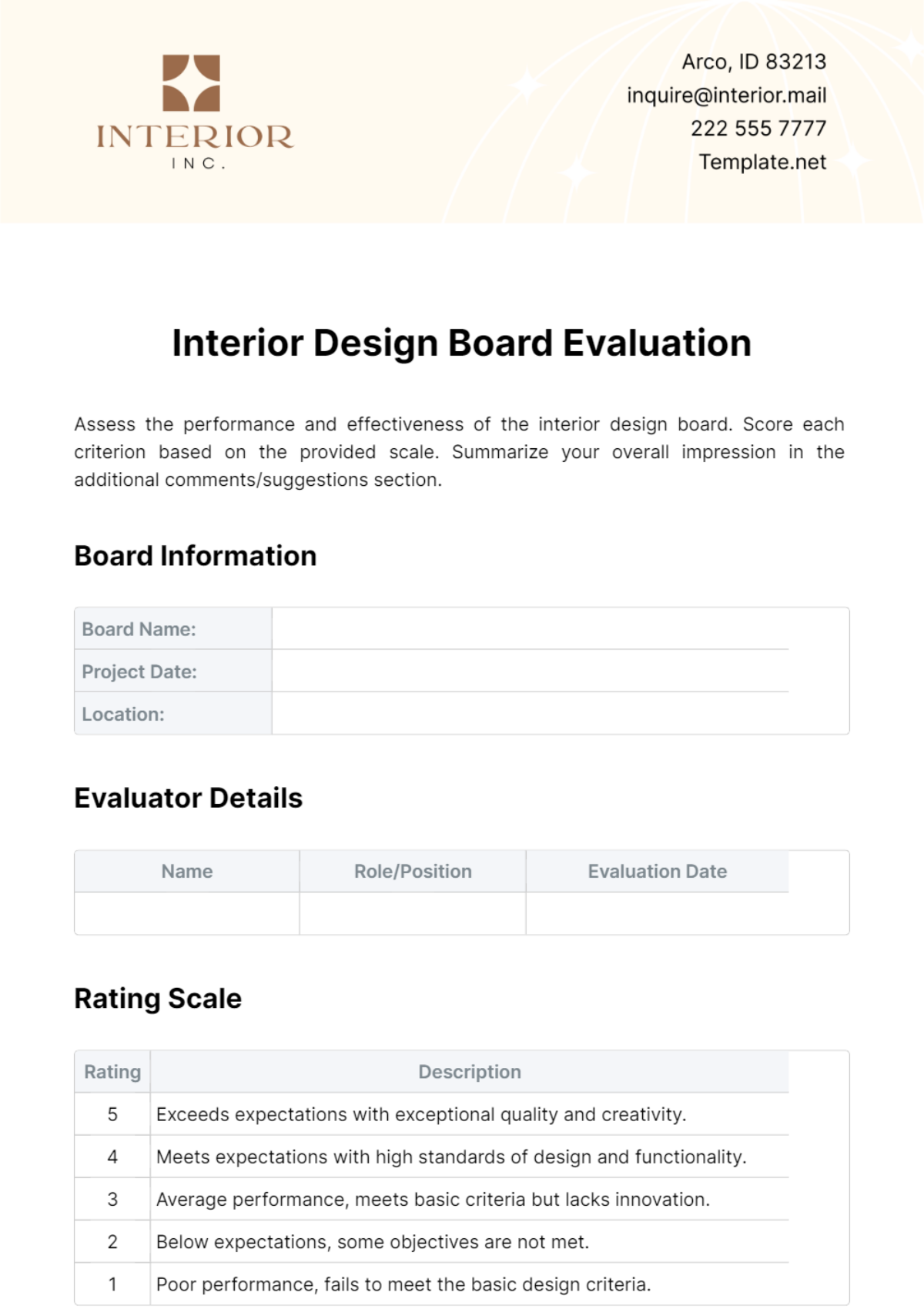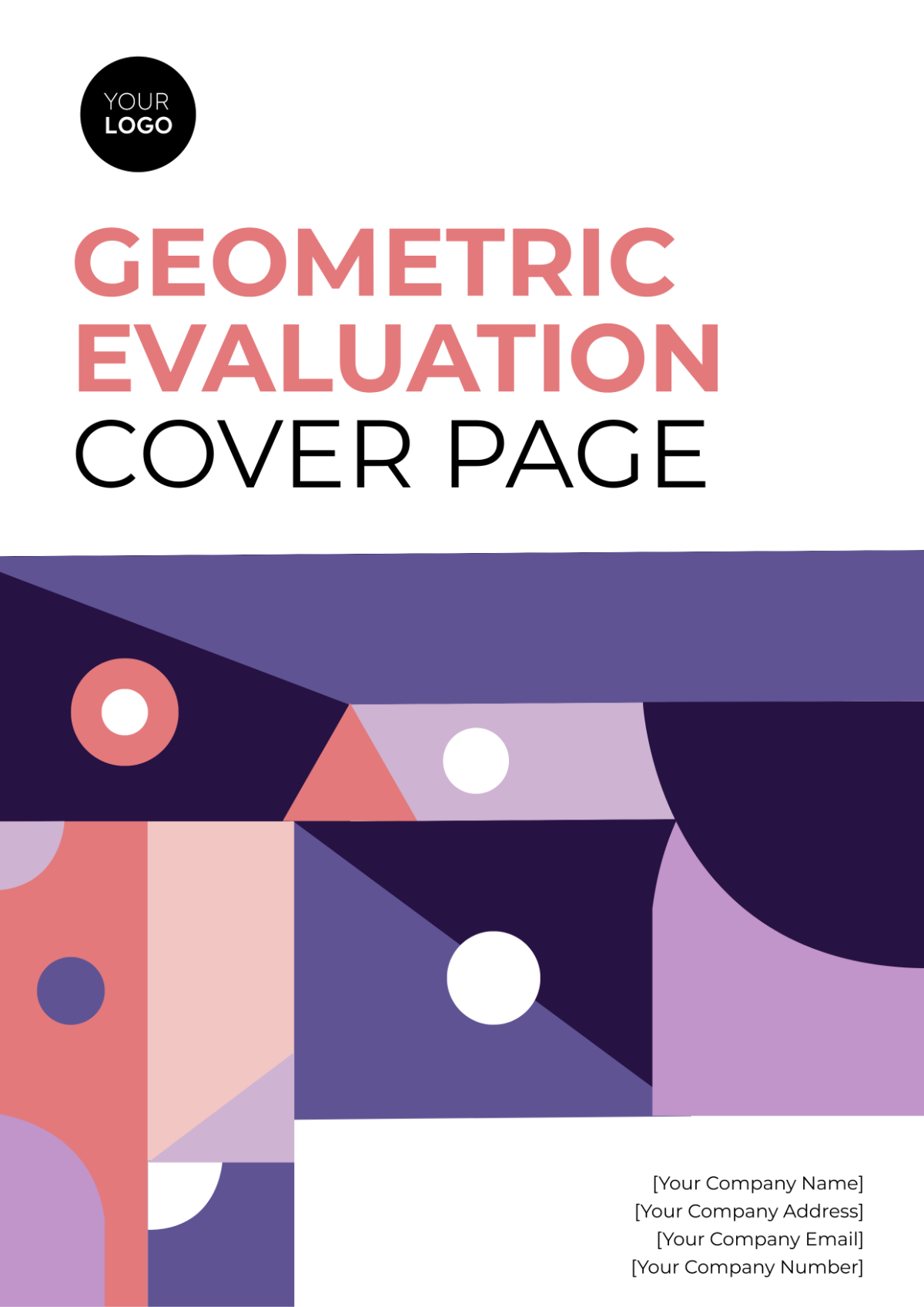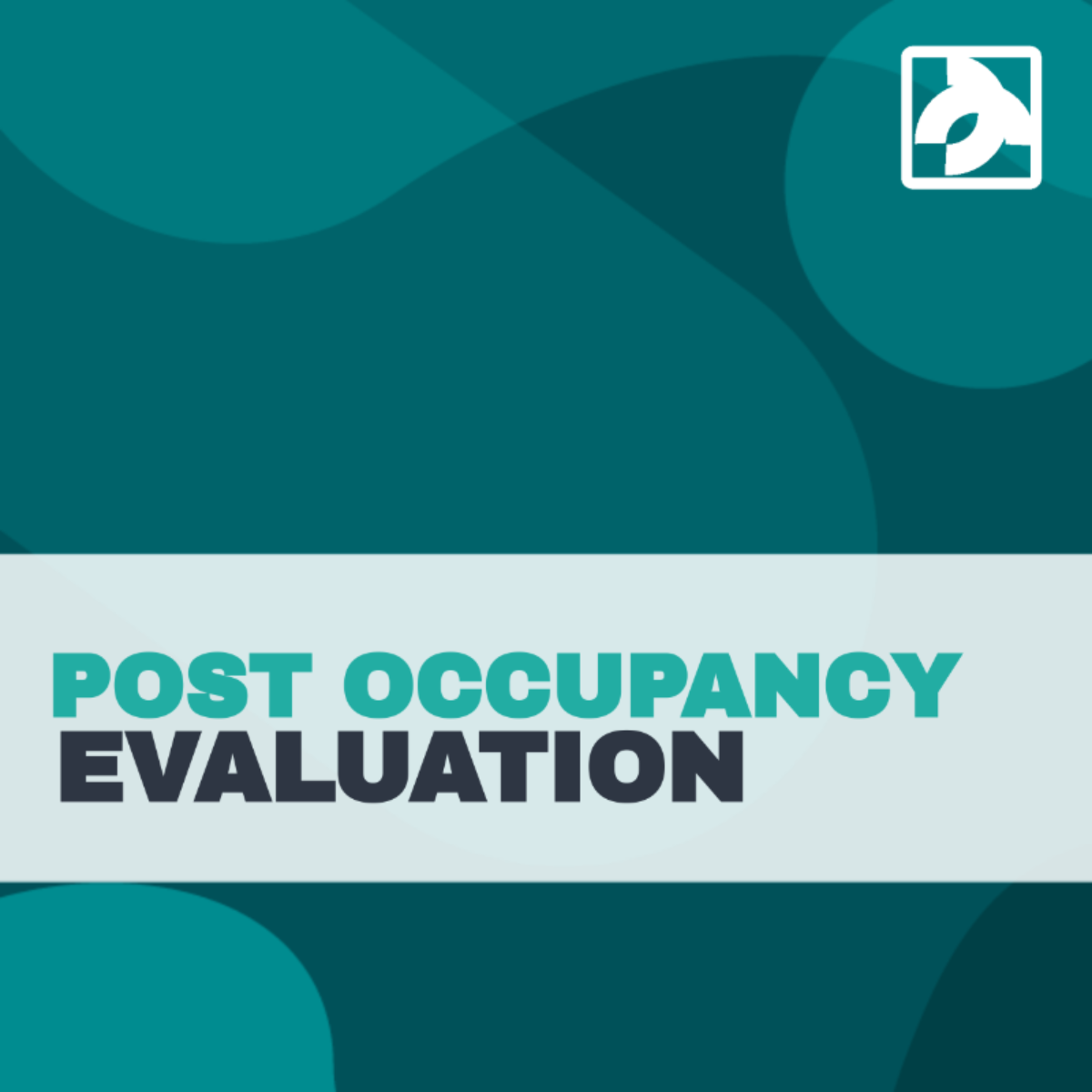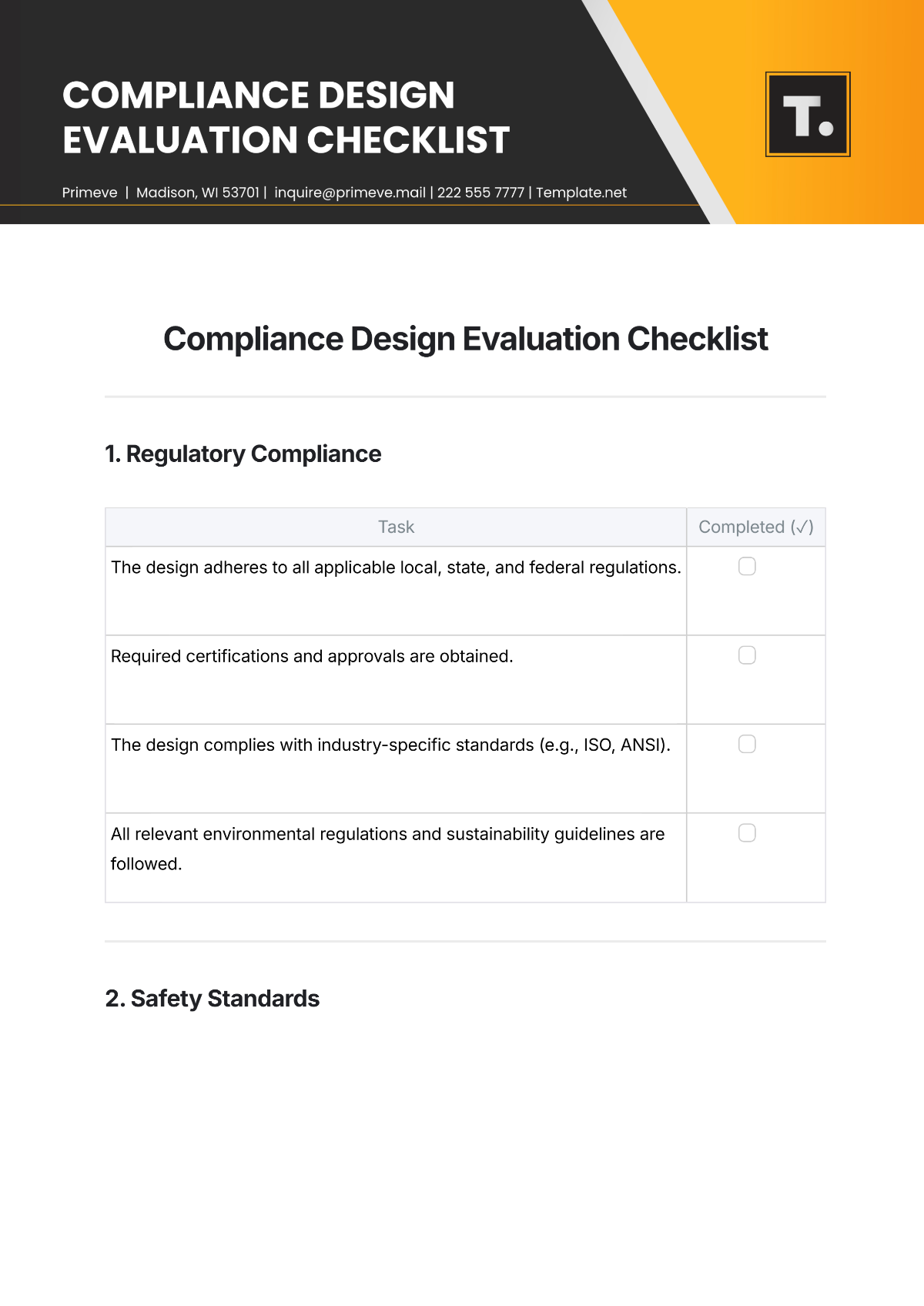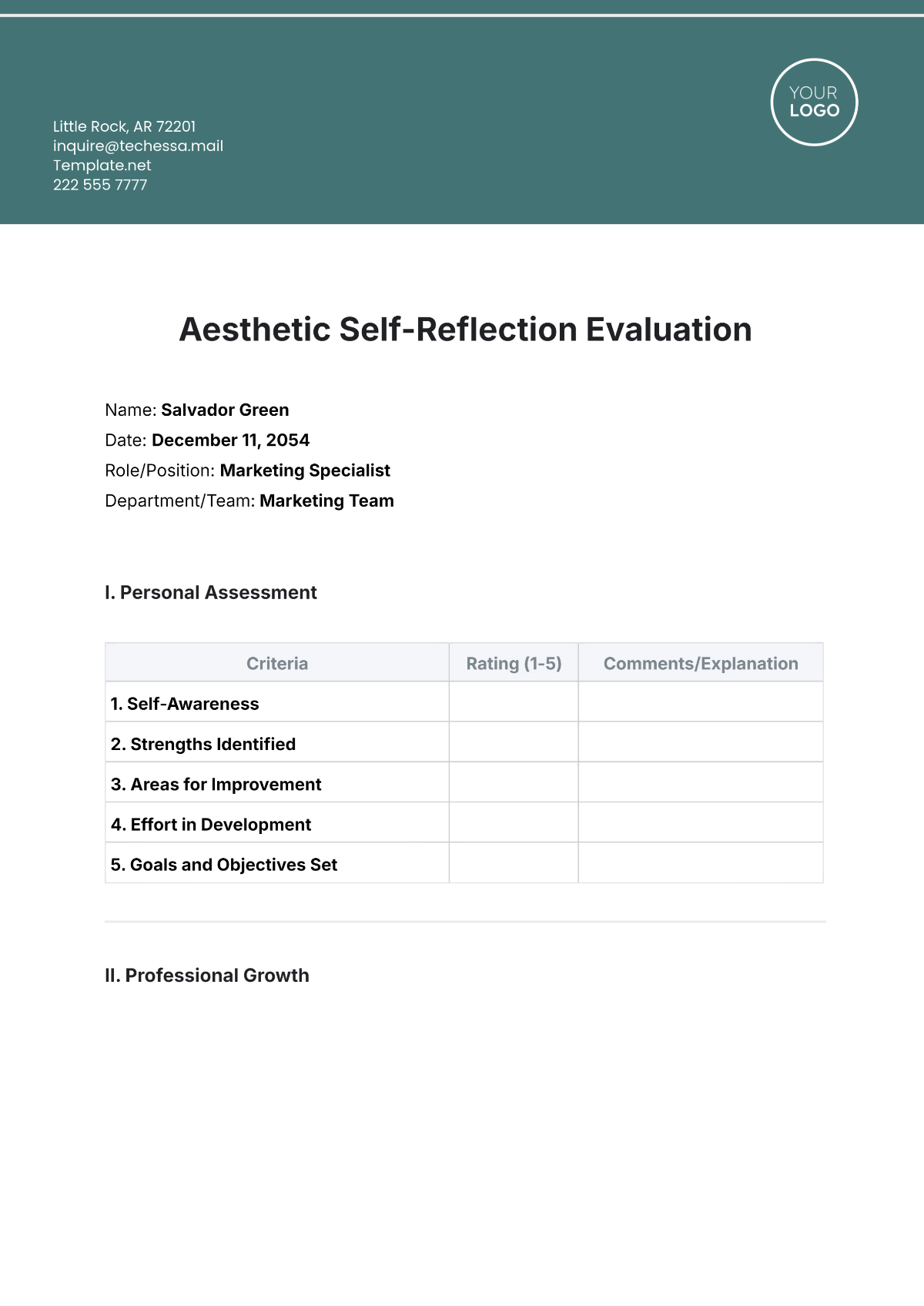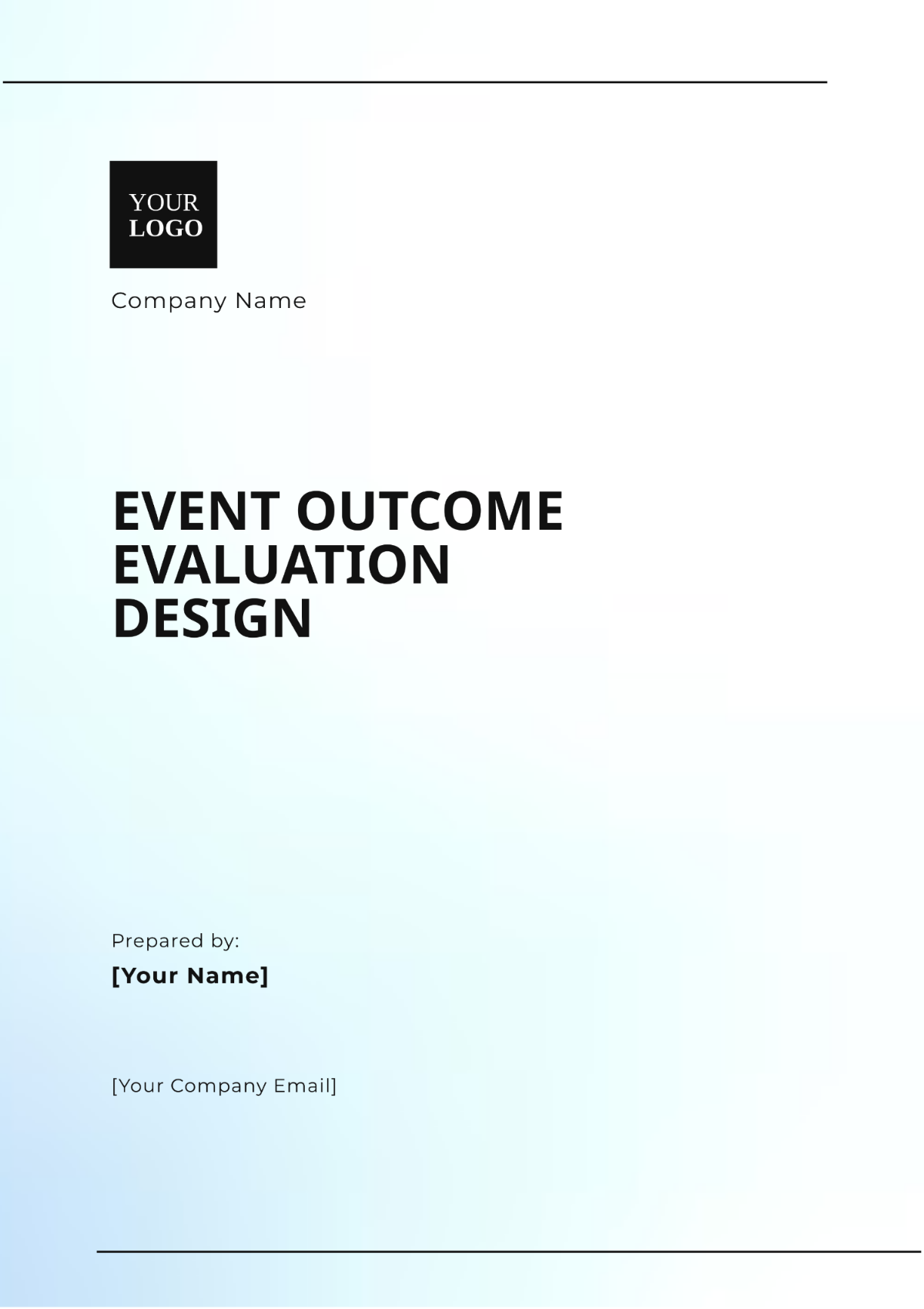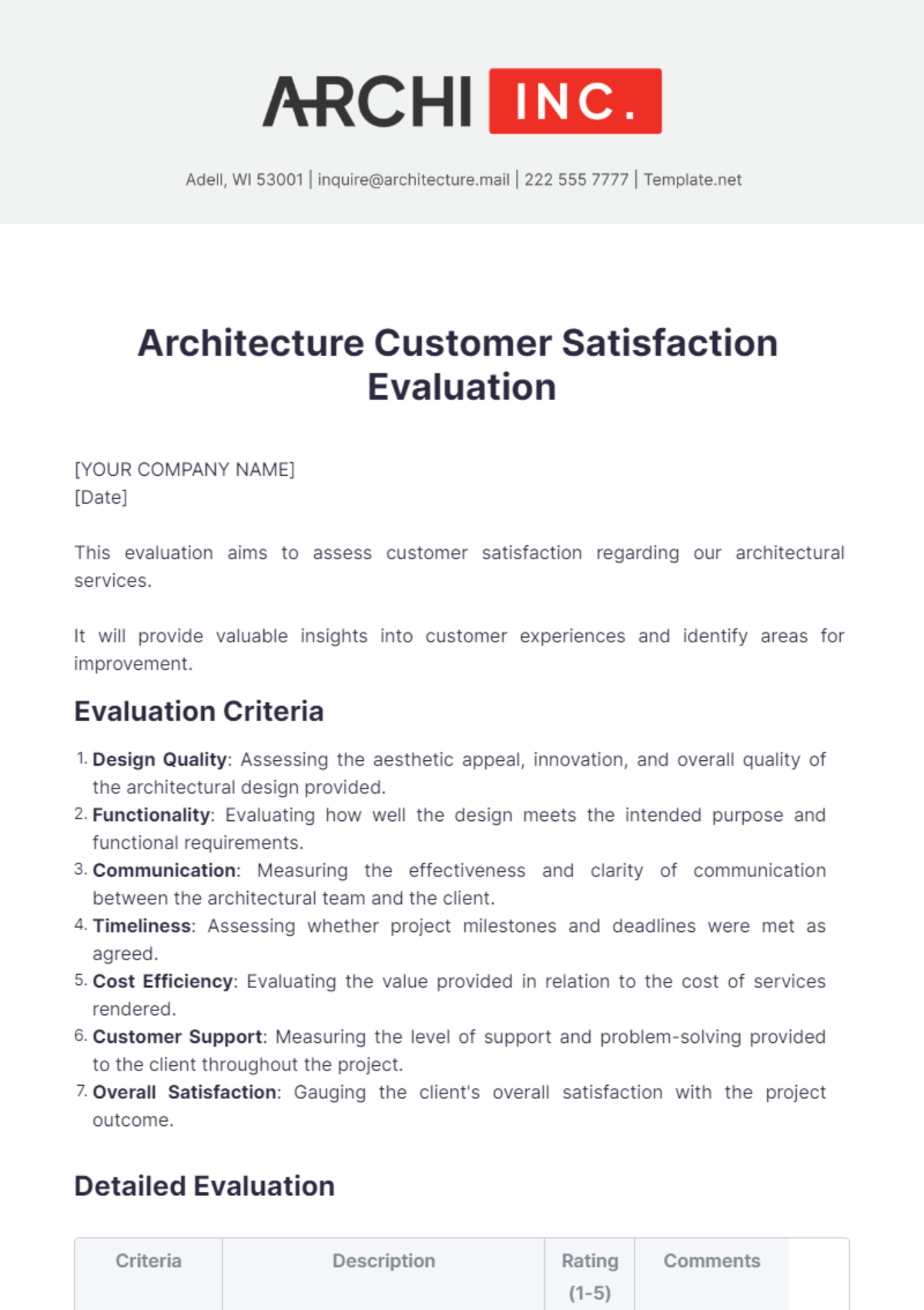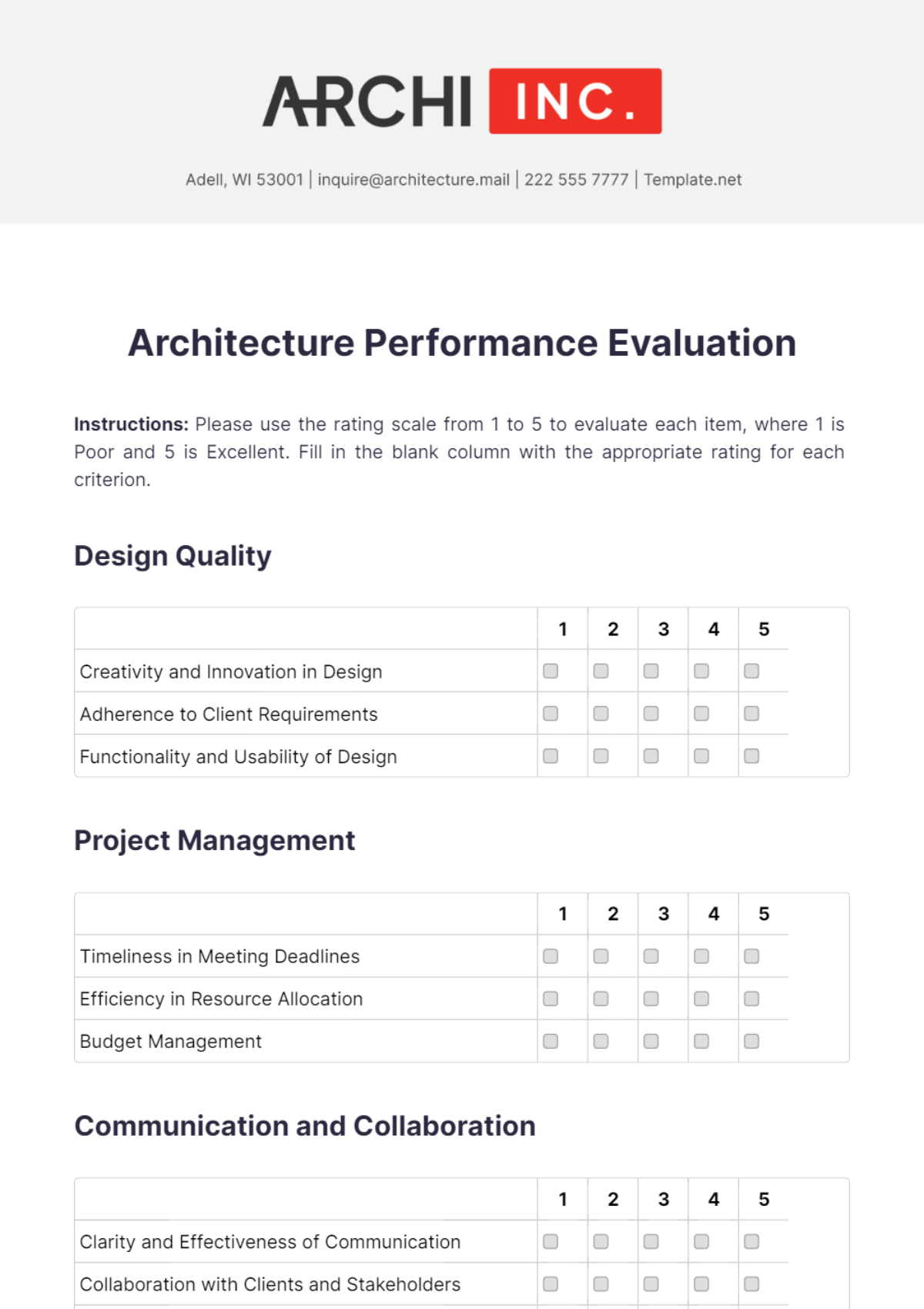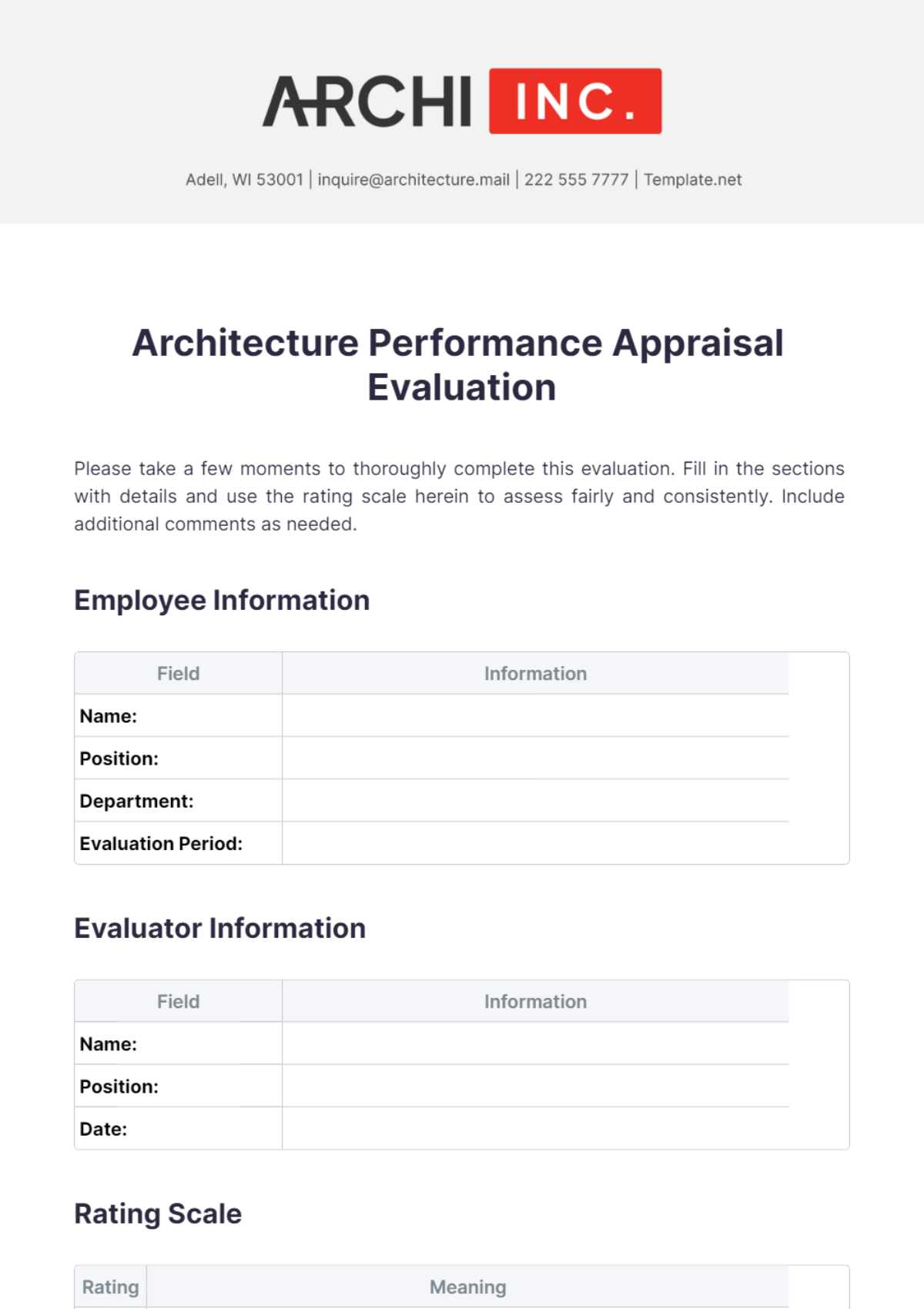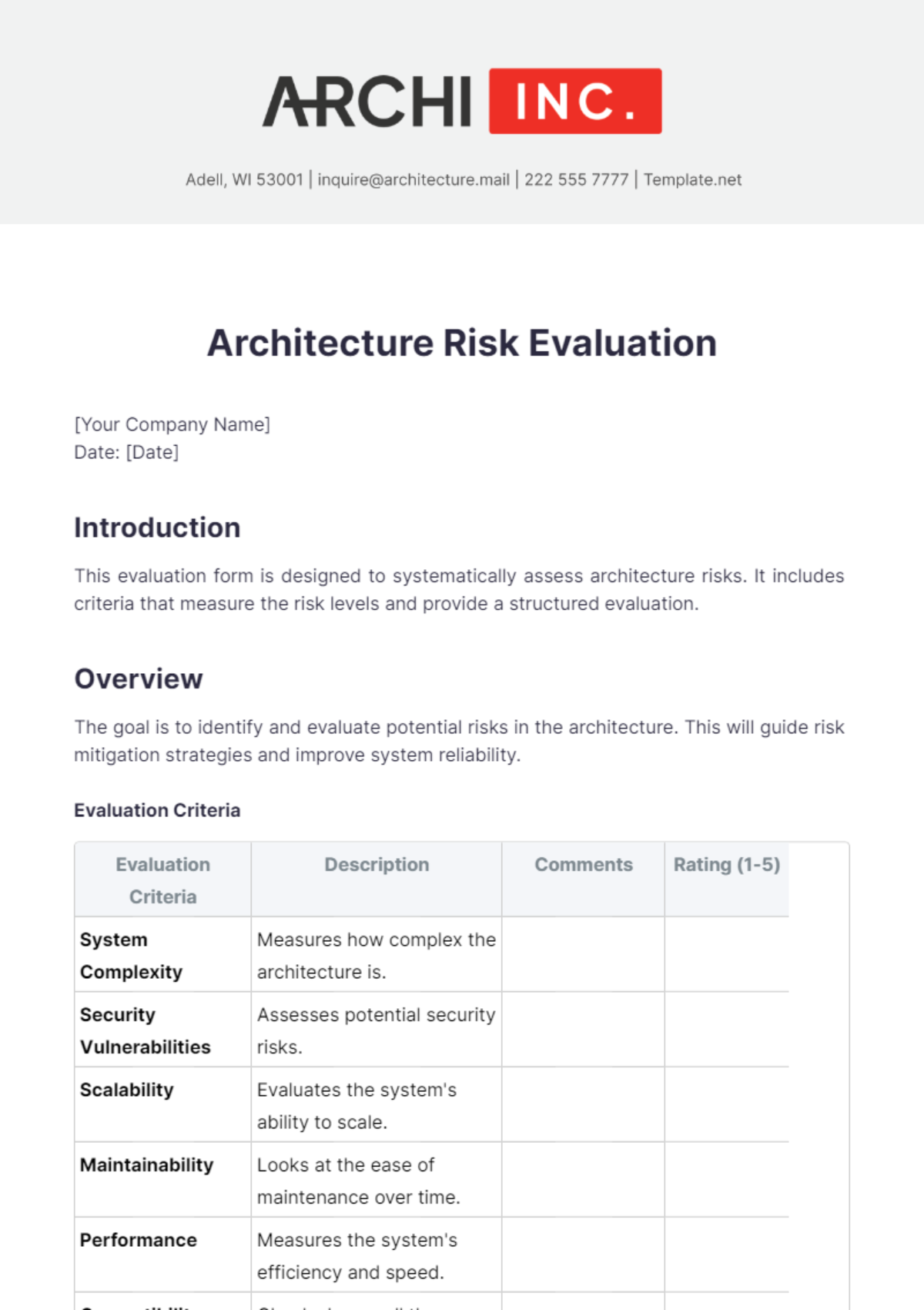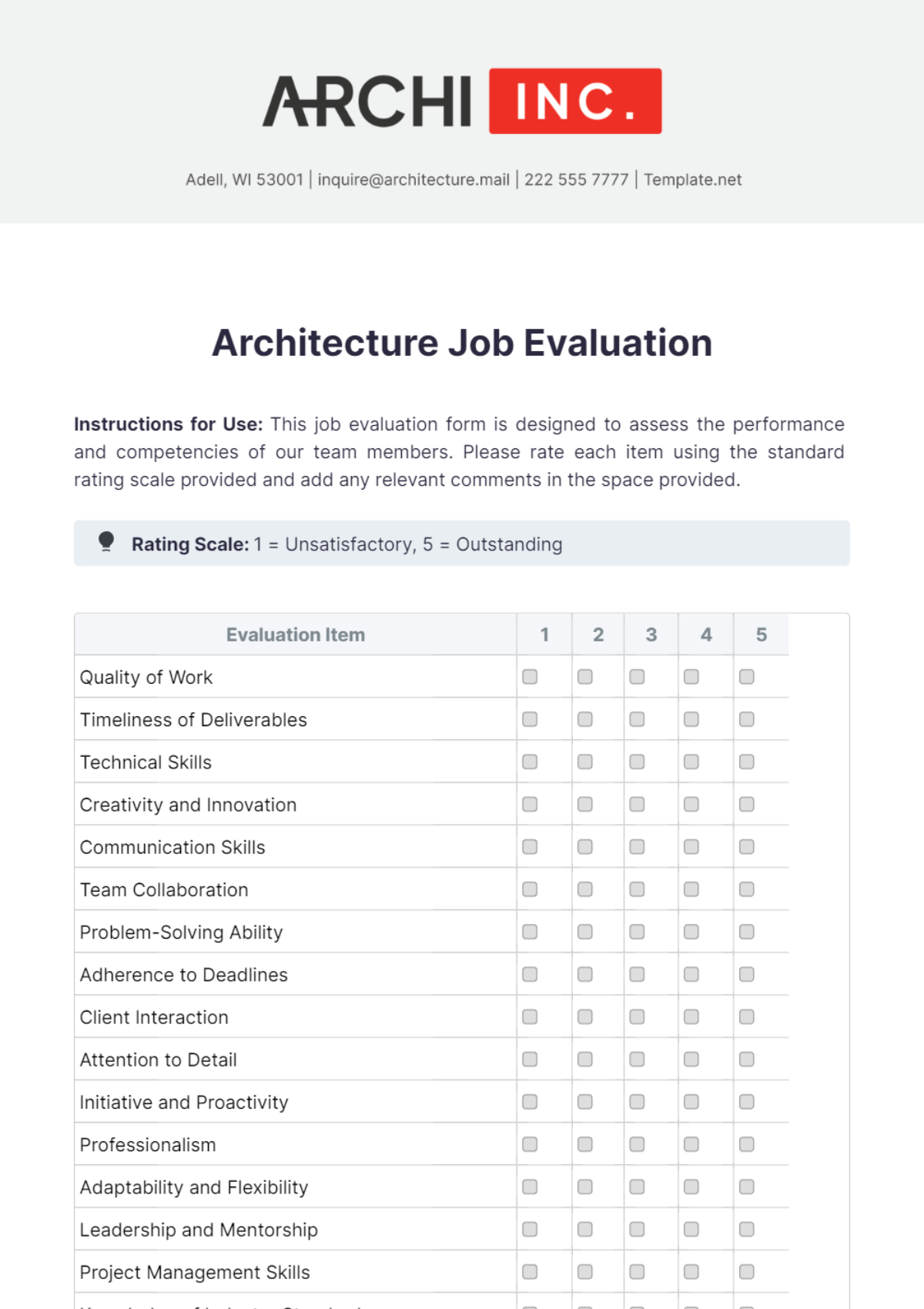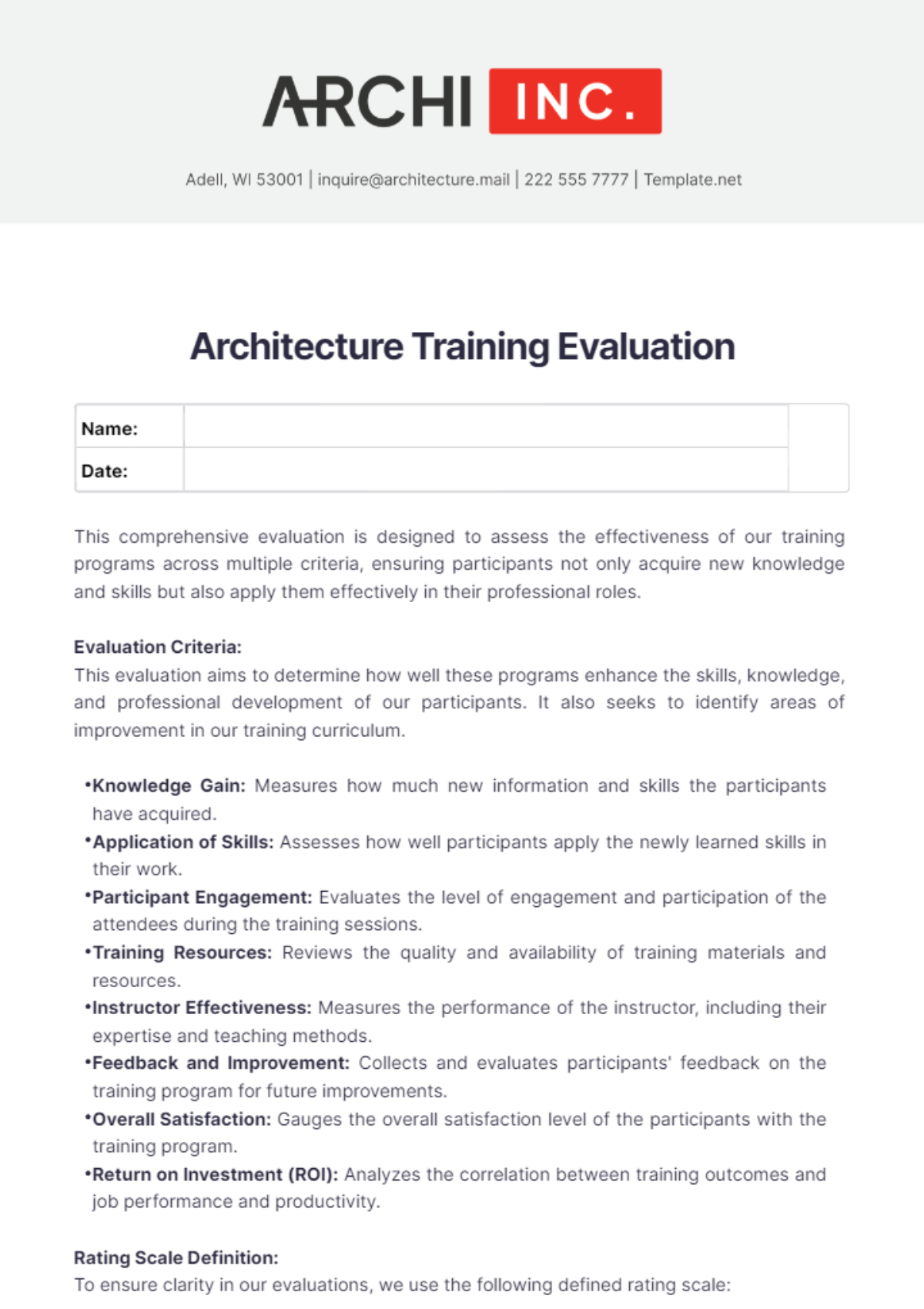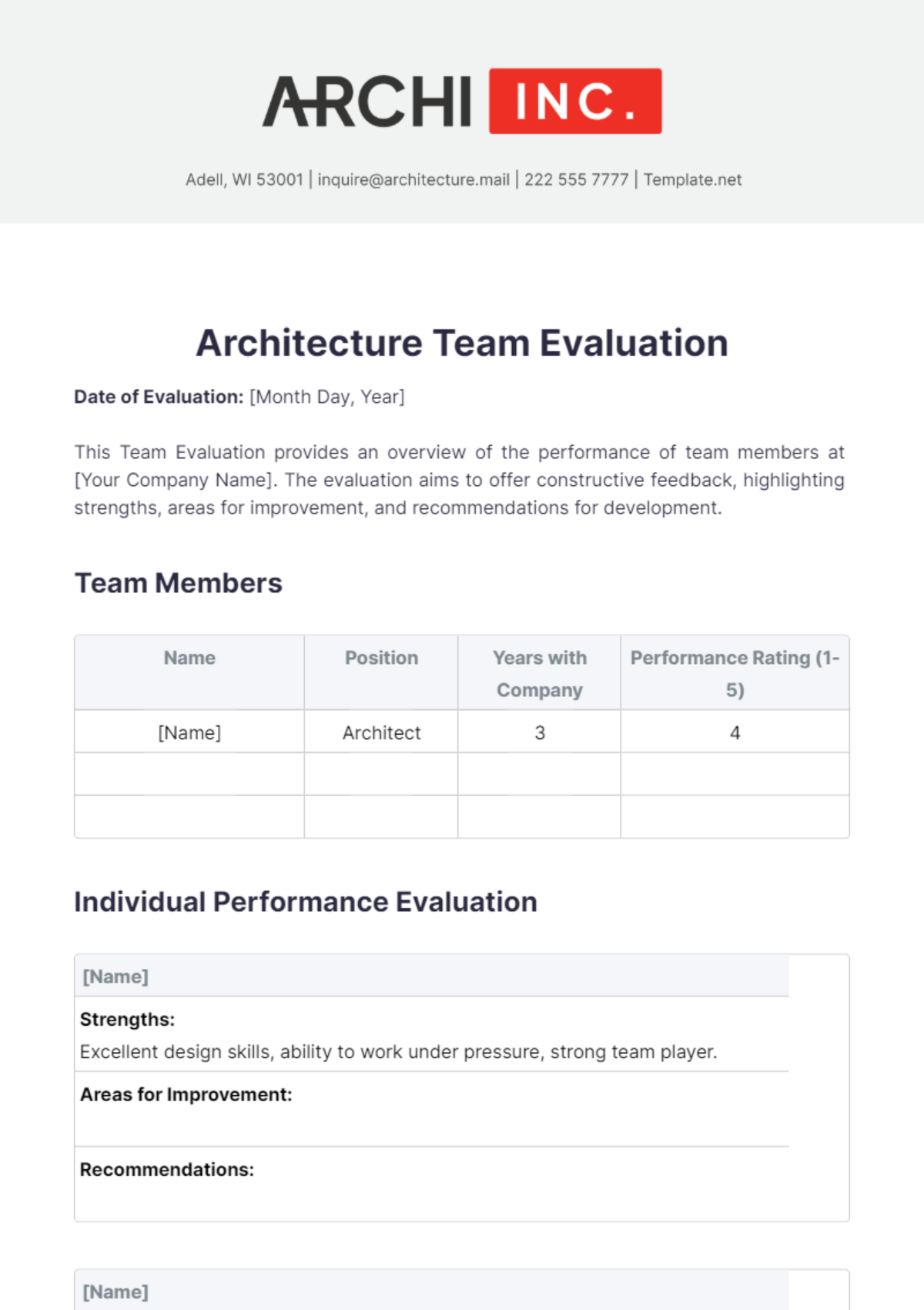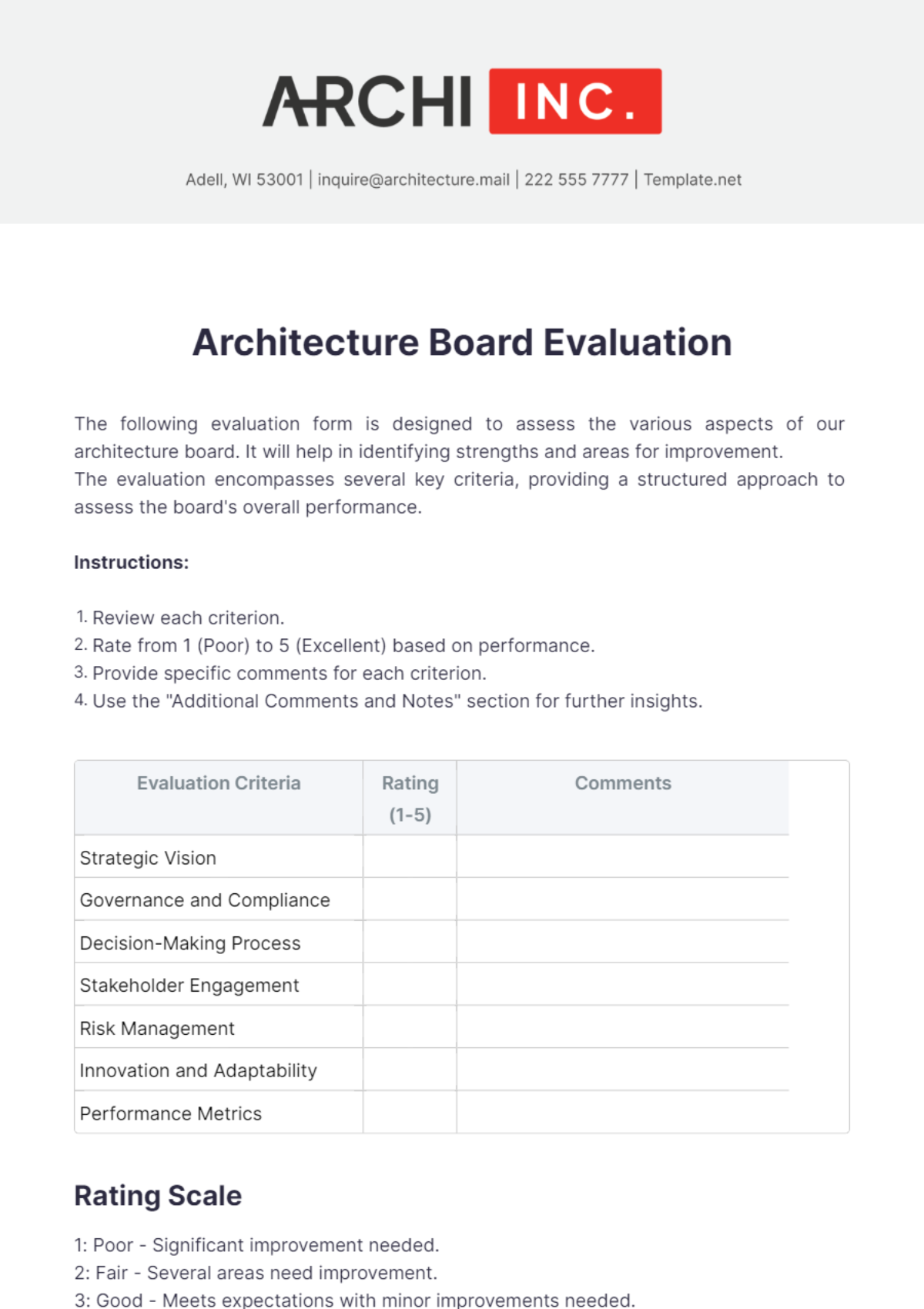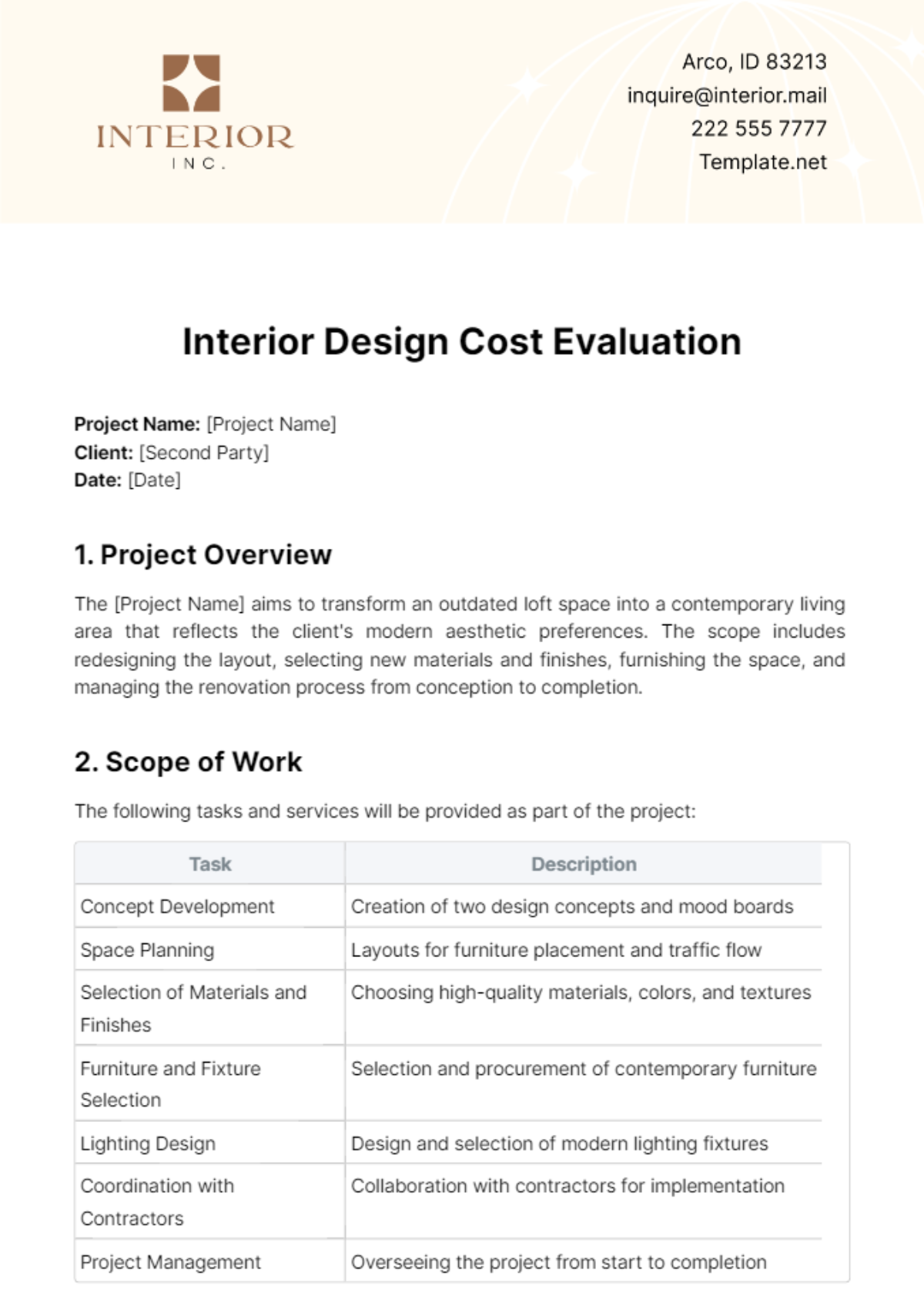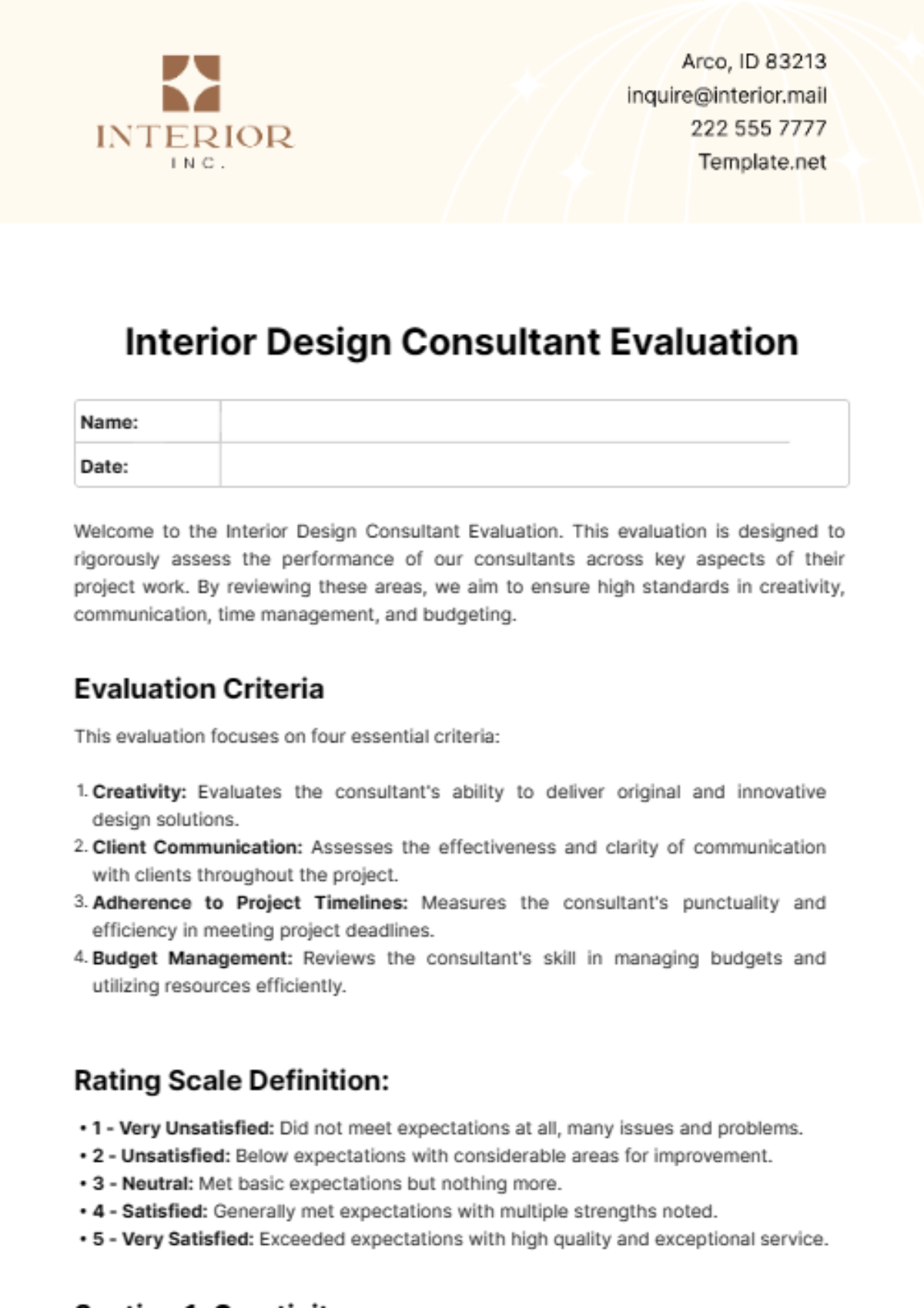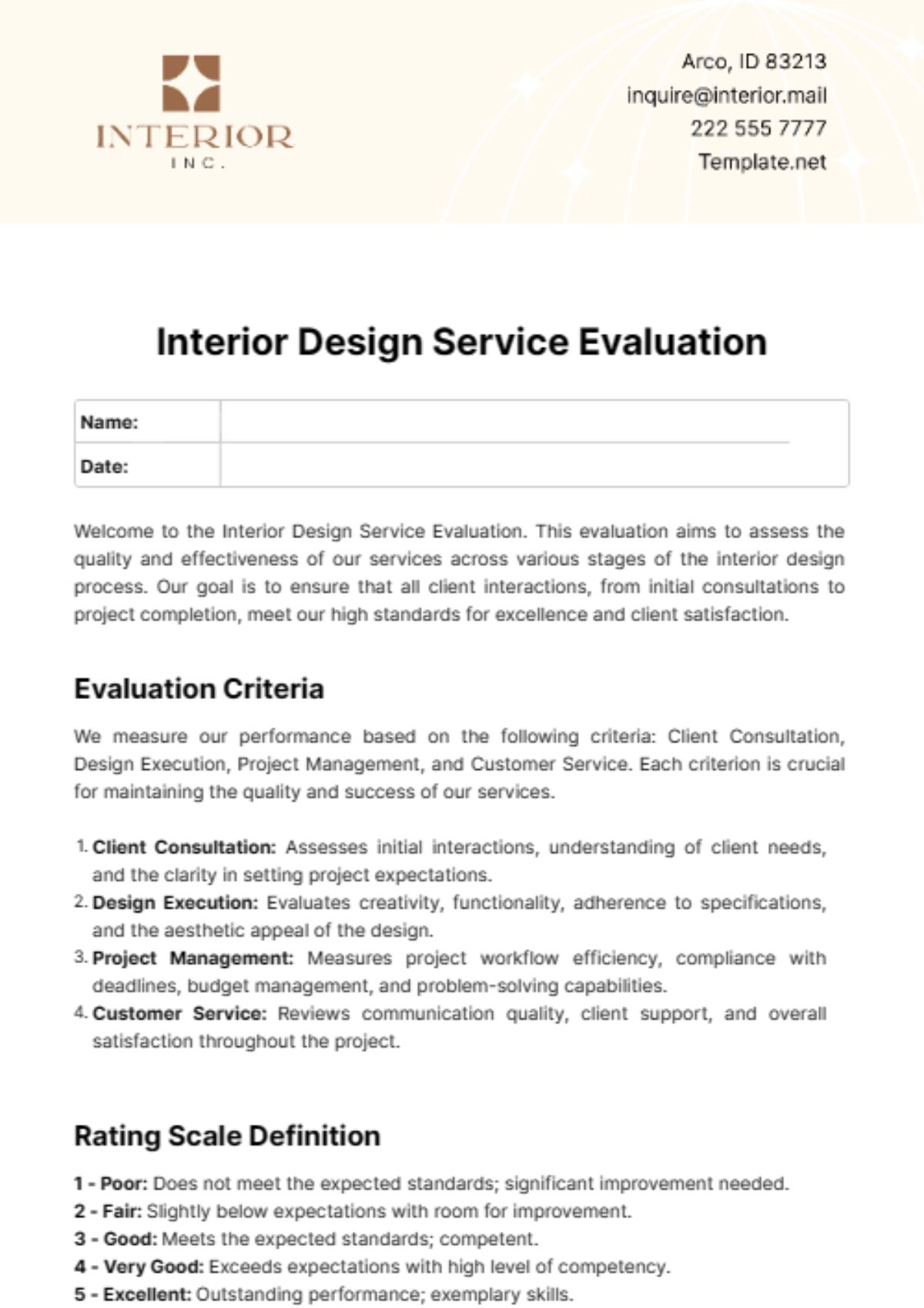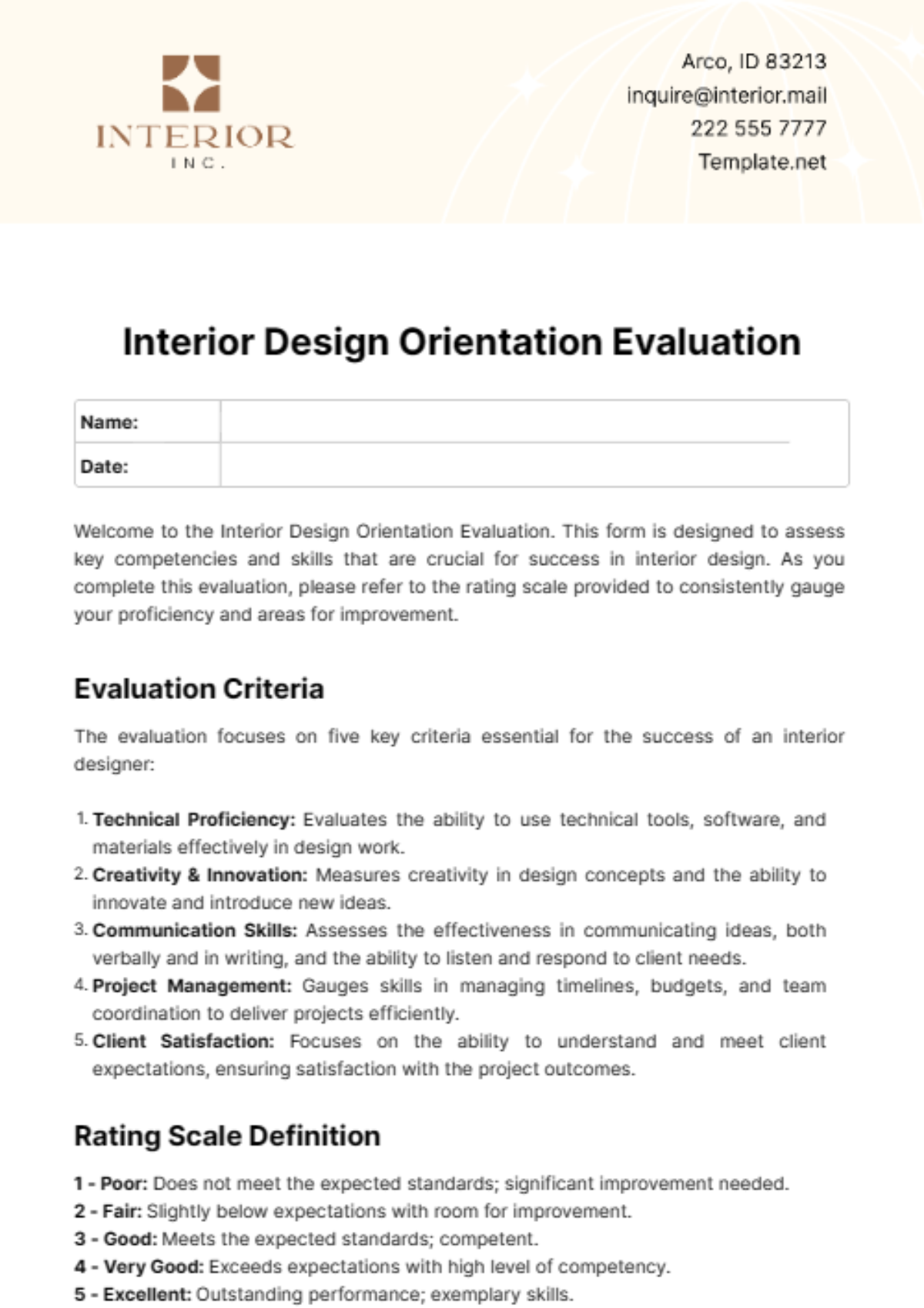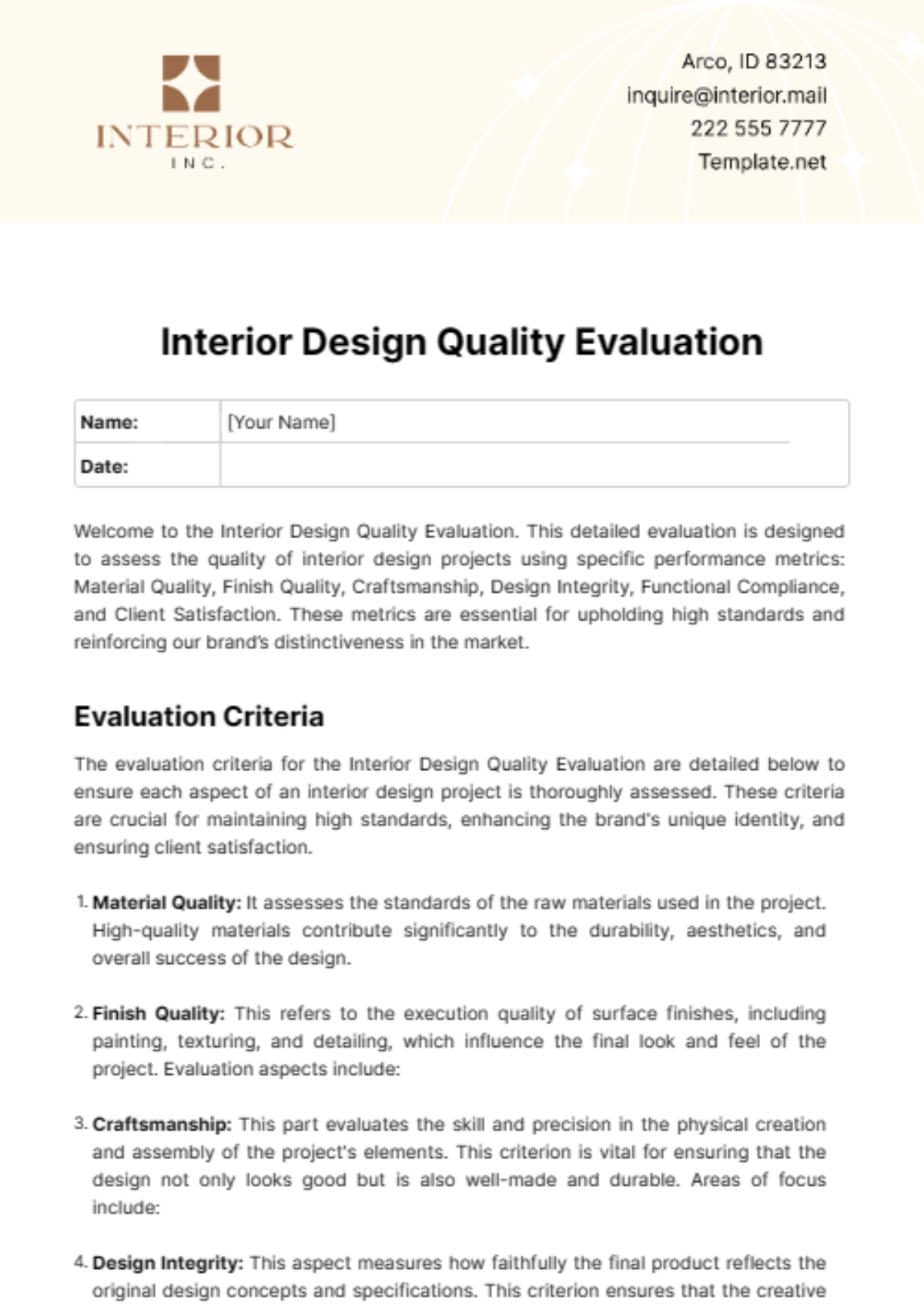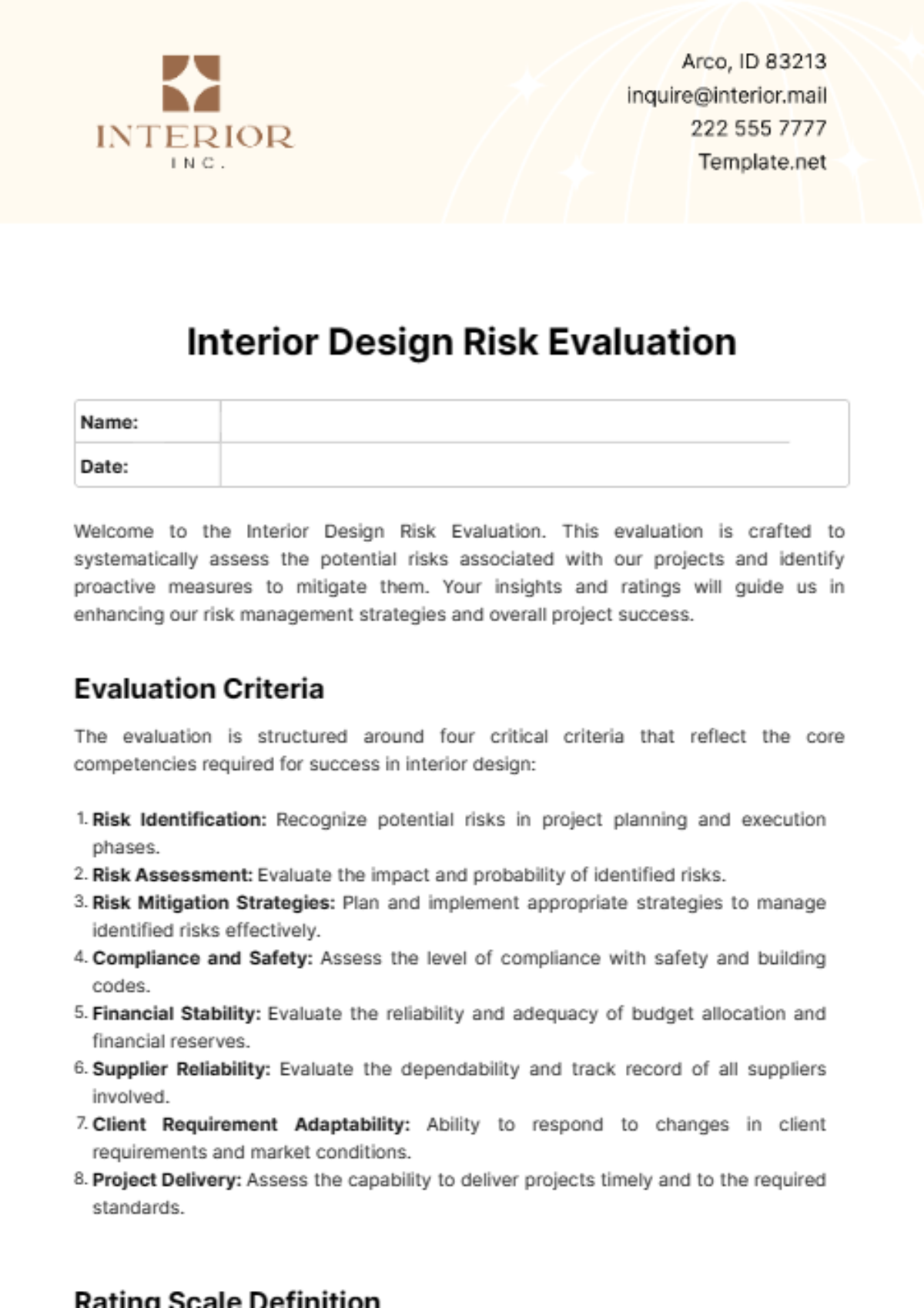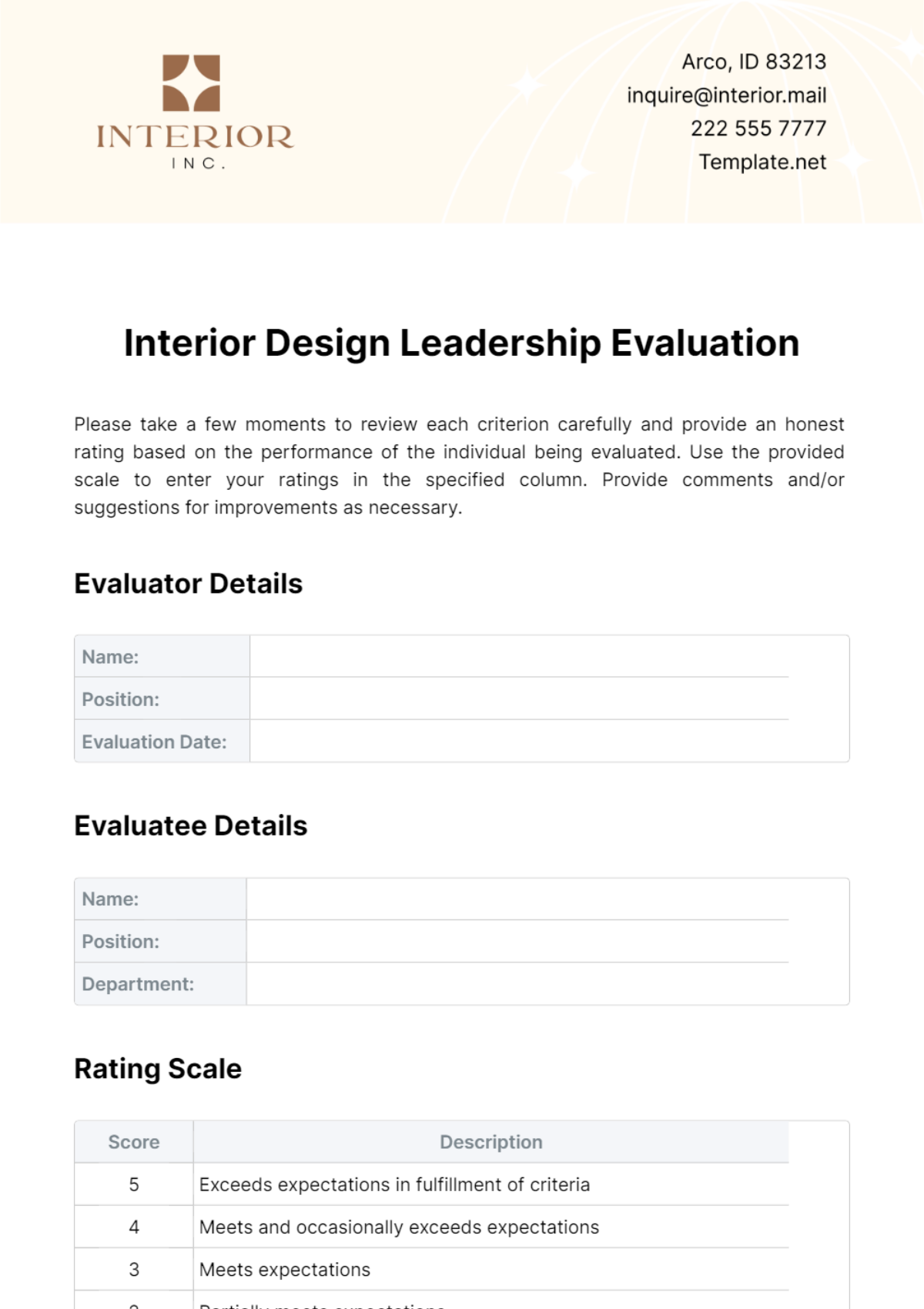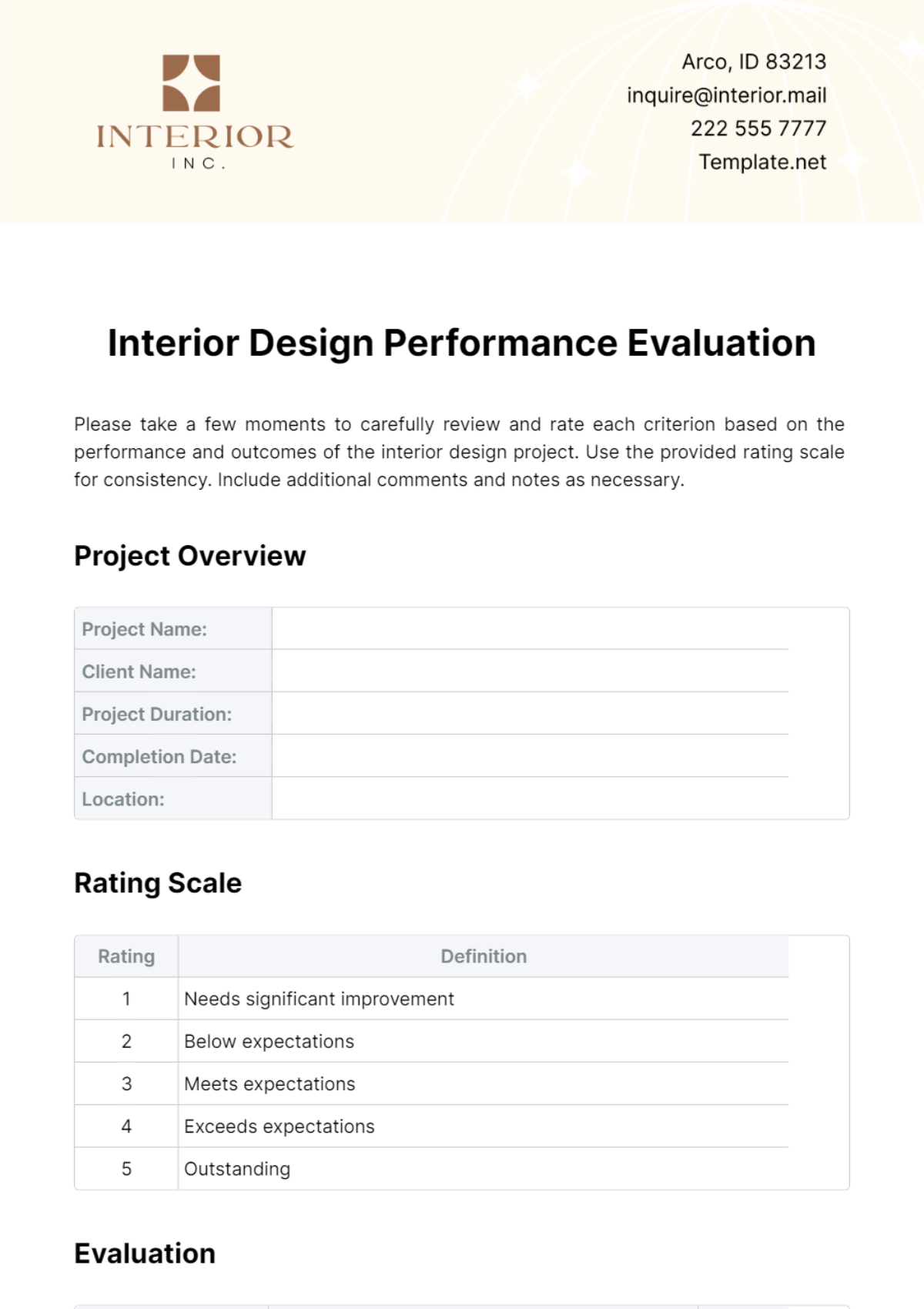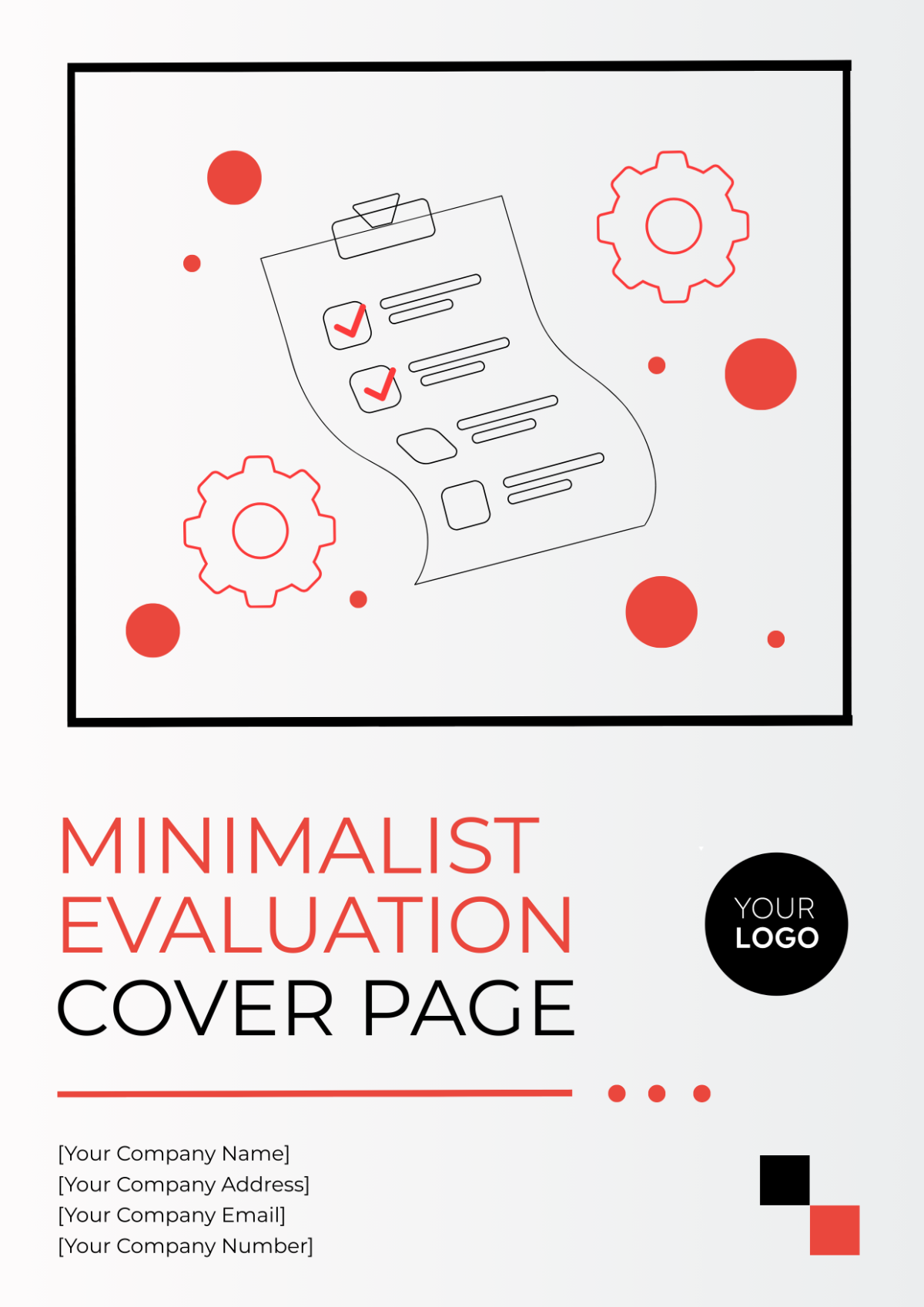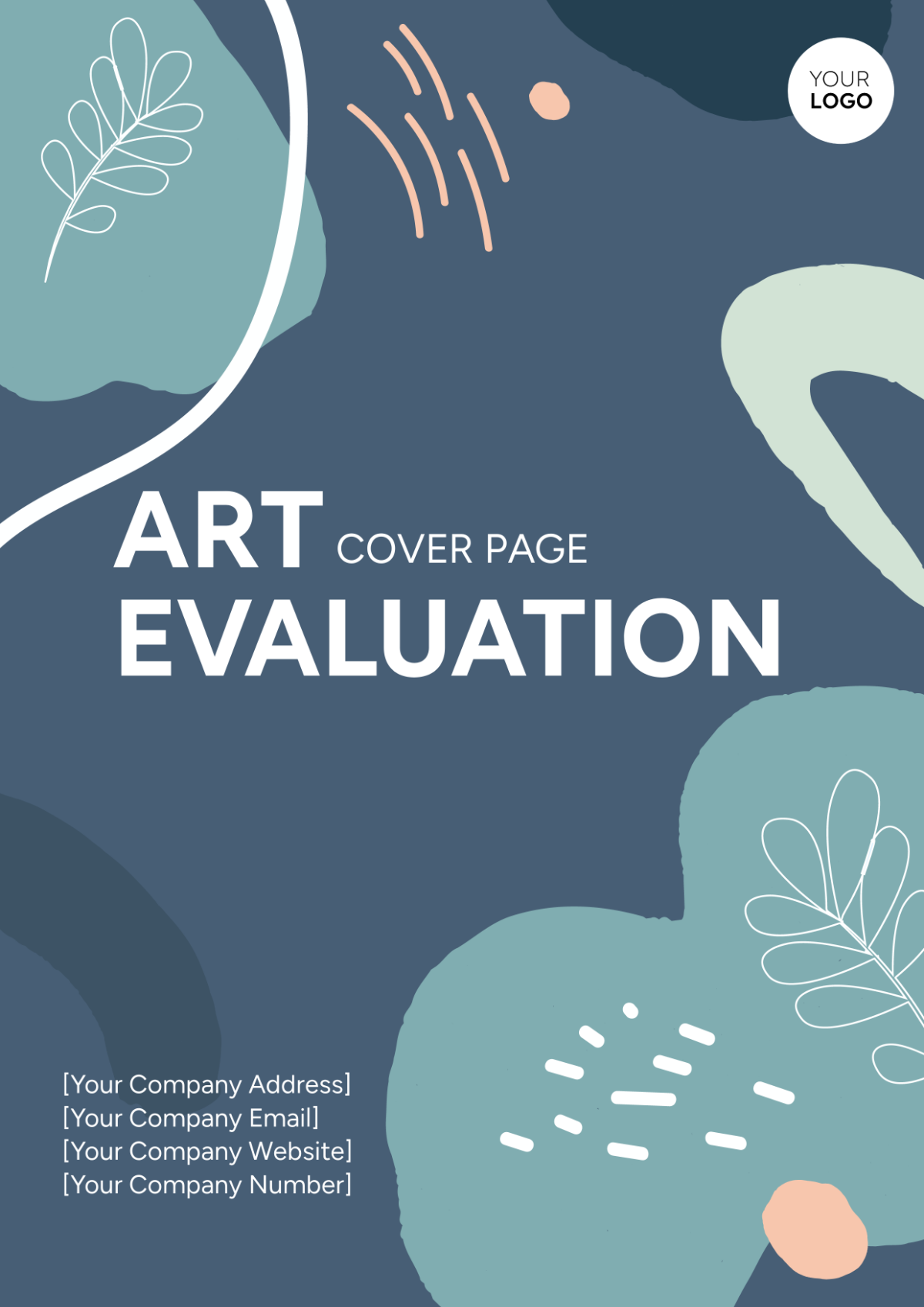Architecture Training Evaluation
Name: | |
Date: |
This comprehensive evaluation is designed to assess the effectiveness of our training programs across multiple criteria, ensuring participants not only acquire new knowledge and skills but also apply them effectively in their professional roles.
Evaluation Criteria:
This evaluation aims to determine how well these programs enhance the skills, knowledge, and professional development of our participants. It also seeks to identify areas of improvement in our training curriculum.
Knowledge Gain: Measures how much new information and skills the participants have acquired.
Application of Skills: Assesses how well participants apply the newly learned skills in their work.
Participant Engagement: Evaluates the level of engagement and participation of the attendees during the training sessions.
Training Resources: Reviews the quality and availability of training materials and resources.
Instructor Effectiveness: Measures the performance of the instructor, including their expertise and teaching methods.
Feedback and Improvement: Collects and evaluates participants' feedback on the training program for future improvements.
Overall Satisfaction: Gauges the overall satisfaction level of the participants with the training program.
Return on Investment (ROI): Analyzes the correlation between training outcomes and job performance and productivity.
Rating Scale Definition:
To ensure clarity in our evaluations, we use the following defined rating scale:
Rating | Definition |
|---|---|
1 | Very Poor: Far below expectations, significant improvement needed. |
2 | Poor: Below expectations, several areas need improvement. |
3 | Average: Meets expectations, acceptable but not impressive. |
4 | Good: Generally meets and occasionally exceeds expectations. |
5 | Excellent: Consistently exceeds expectations, outstanding performance. |
Section 1: Knowledge Gain
Knowledge gain is crucial for enhancing professional capabilities. This section evaluates how effectively the training imparts new knowledge and skills, focusing on their relevance and applicability.
Criteria | Description | Rating (1-5) | Comment |
|---|---|---|---|
Information Acquisition | Extent of new information gained. | 4 | Participants gained a substantial amount of relevant architectural knowledge. |
Skill Development | New skills developed during the training. | ||
Relevance to Work | How relevant the training is to participants' current roles. | ||
Technical Proficiency | Improvement in technical skills specific to architecture. | ||
Conceptual Understanding | Depth of understanding in architectural concepts taught. |
Section 2: Application of Skills
The true test of any training is the application of learned skills in real-world scenarios. This section assesses participants' ability to apply training in their daily architectural tasks effectively.
Criteria | Description | Rating (1-5) | Comment |
|---|---|---|---|
Practical Integration | Integration of learned skills into work practices. | 4 | Participants effectively applied learned techniques in ongoing projects. |
Problem Solving | Use of new skills to solve real-world problems. | ||
Innovation | Application of skills in innovative projects. | ||
Design Implementation | Application of design skills in project execution. | ||
Analytical Skills | Use of analytical skills in assessing project needs. |
Section 3: Participant Engagement
Engagement is a key indicator of a training program's effectiveness. This section measures participants' involvement and responsiveness during the training sessions.
Criteria | Description | Rating (1-5) | Comment |
|---|---|---|---|
Activity Participation | Active participation in training activities. | 4 | High levels of active participation were observed, indicating strong engagement. |
Interaction | Interaction level with trainers and peers. | ||
Enthusiasm | Overall enthusiasm and interest shown by participants. | ||
Question Engagement | Frequency and quality of questions asked by participants. | ||
Session Feedback | Quality of feedback provided on session effectiveness. |
Section 4: Training Resources
Quality resources are essential for successful learning outcomes. This section evaluates the availability and effectiveness of the materials and tools provided during the training.
Criteria | Description | Rating (1-5) | Comment |
|---|---|---|---|
Material Quality | Quality of training materials provided. | 4 | Training materials were comprehensive and well-suited for architectural training. |
Resource Accessibility | Ease of access to training resources. | ||
Support Tools | Availability of supplementary tools for learning. | ||
Resource Relevance | Relevance of materials to training topics. | ||
Material Up-to-dateness | Currentness of the content in training materials. |
Section 5: Instructor Effectiveness
Instructors are pivotal to the learning experience. This section measures the instructors' expertise, method of delivery, and ability to engage and transfer knowledge effectively.
Criteria | Description | Rating (1-5) | Comment |
|---|---|---|---|
Expertise | Depth of knowledge and expertise of the instructor. | 4 | The instructor displayed a high level of expertise in architectural practices. |
Teaching Methods | Effectiveness of the teaching methods used. | ||
Engagement | Ability to engage and motivate participants. | ||
Communication Skills | Clarity and effectiveness of communication. | ||
Responsiveness | Instructor's responsiveness to participant inquiries. |
This thorough evaluation ensures that our training programs are not only informative but also practically beneficial, enhancing the professional development of our participants. Your feedback is crucial for our continuous improvement and success in delivering impactful architectural training.
Prepared by: [Your Name], [Your Job Title]
